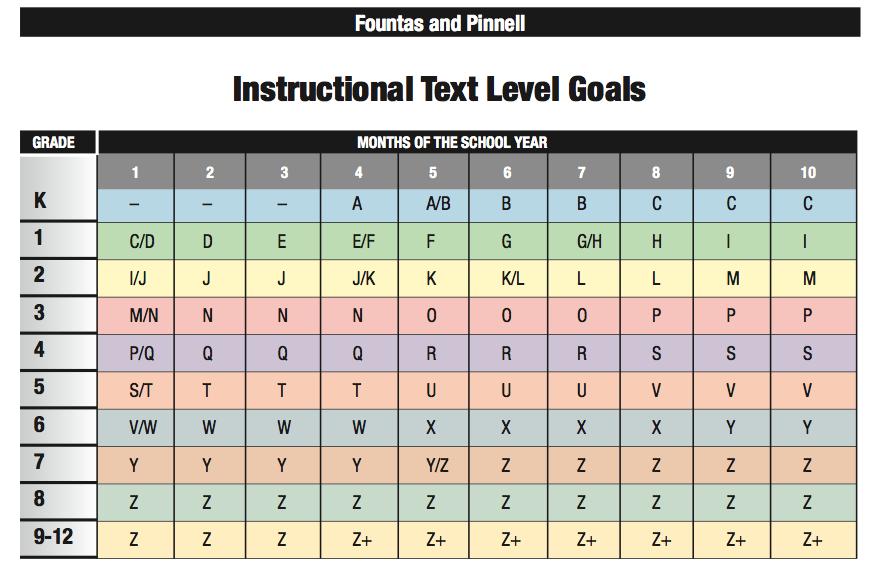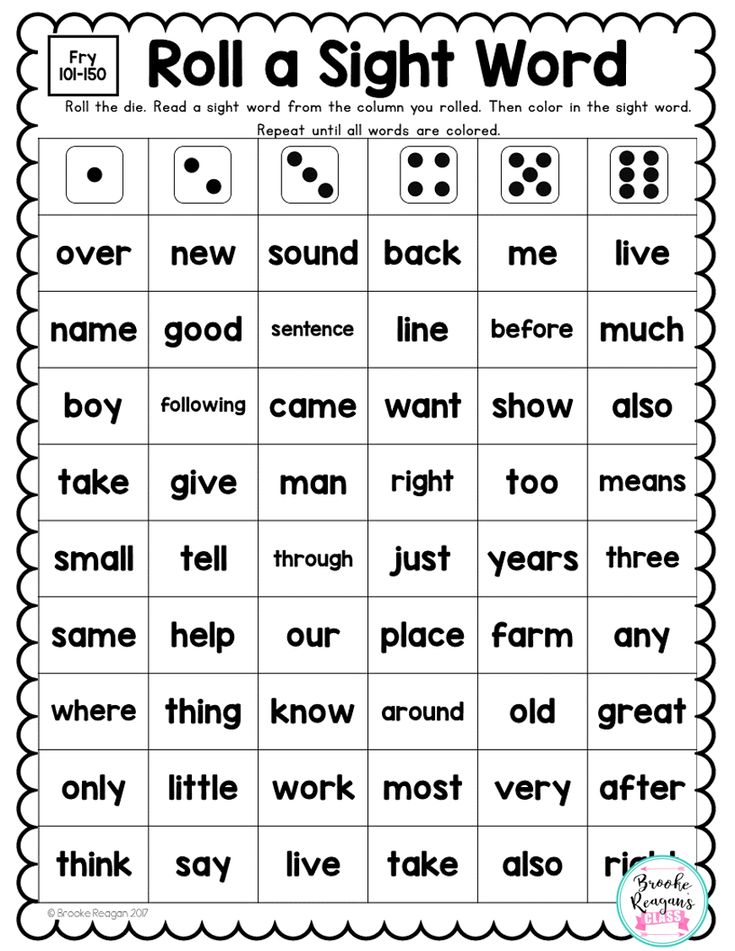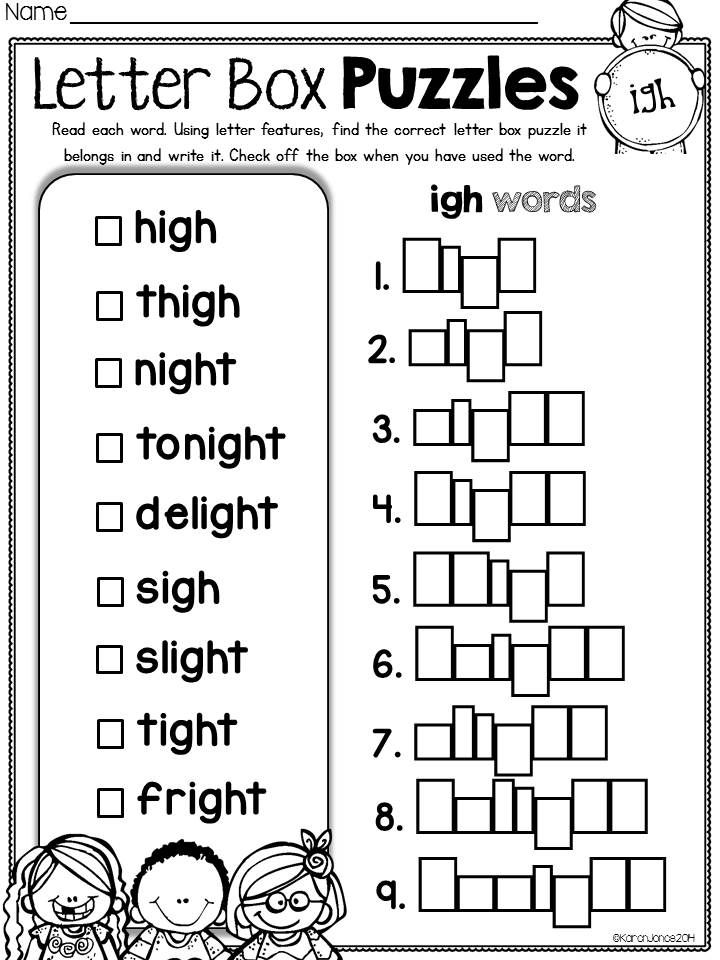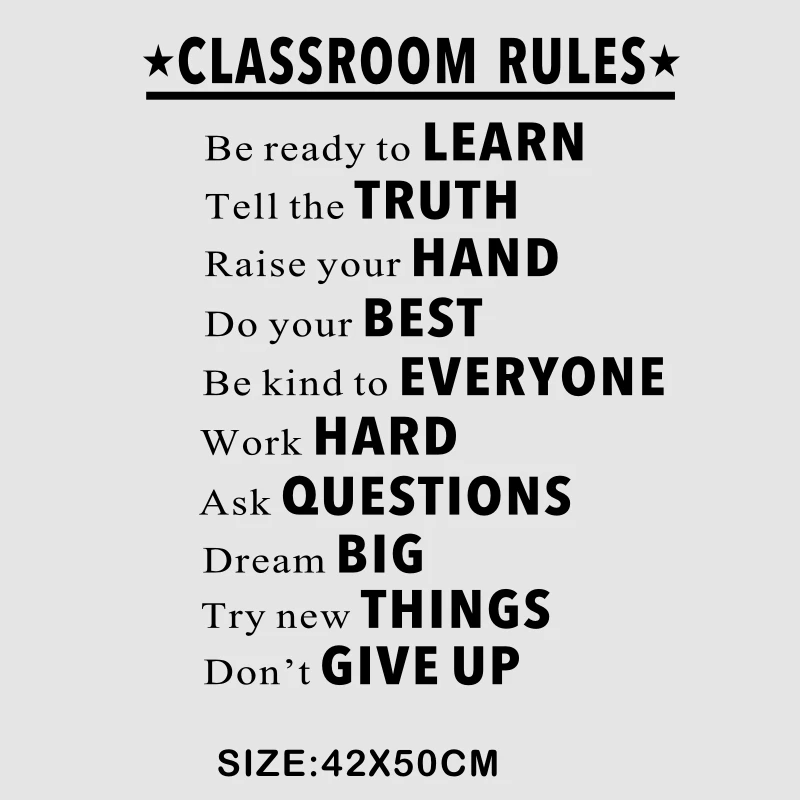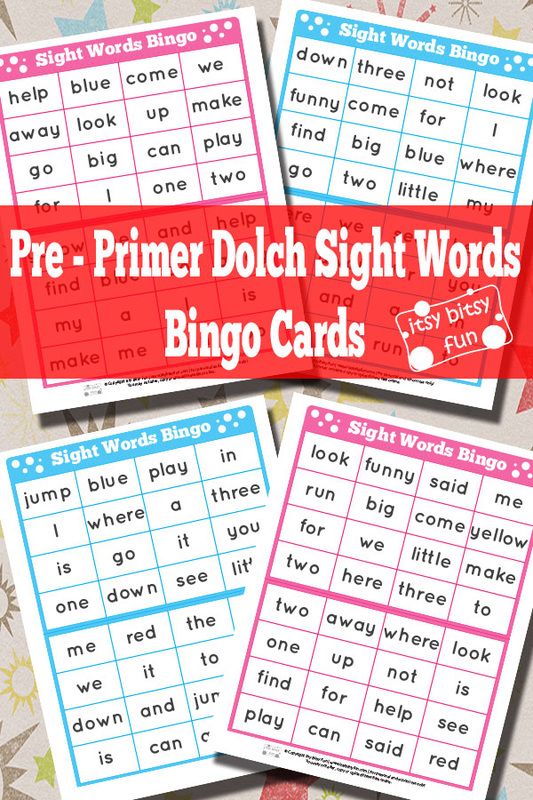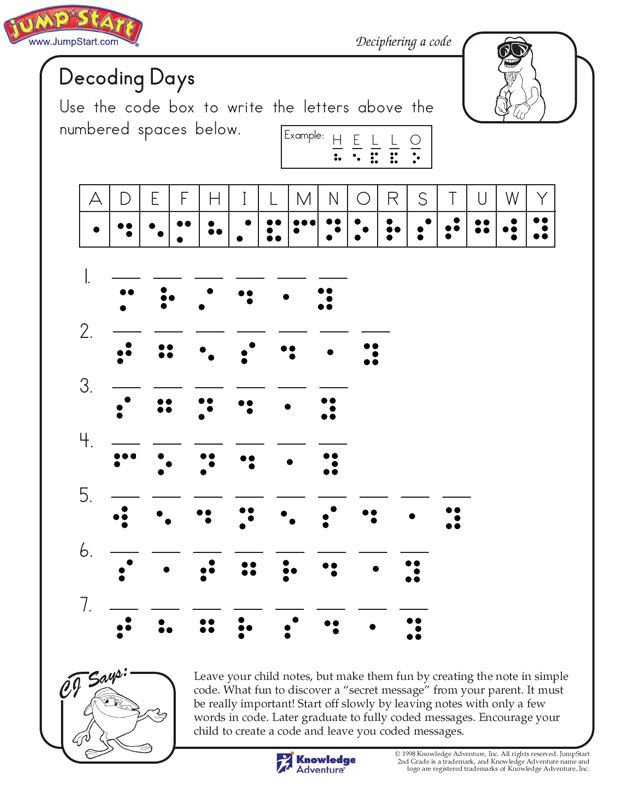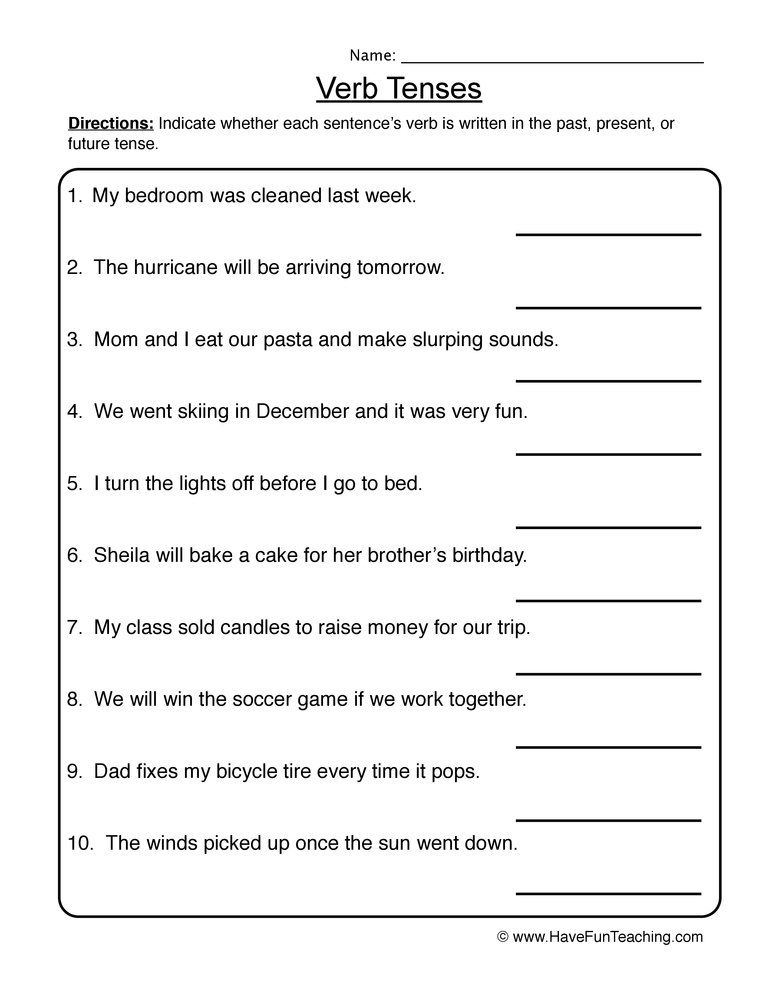Grade school reading levels
Reading Levels Explained: What They Are & How They Are Assessed
When your child is first learning to read, reading levels are an important tool for helping them move forward without the struggle. But did you know even older readers can benefit from being matched with the appropriate reading level?
In this article, we’ll discuss how reading levels are used and how your child’s level is determined. With the right reading materials, your child can master reading and enjoy it for years to come!
What are reading levels?
Reading levels are a detailed way to pair your child’s reading ability with books they can successfully read and understand.
Reading levels are an effective way to measure a child’s reading progress. If your child is primarily reading books at or just above their determined reading level, they are more likely to find reading enjoyable.
As parents, we’ve all seen how reading can become frustrating. If a beginner reader tries to read a book that is far beyond their abilities, they may simply decide that reading is just too hard. And this frustration can create an overall dislike of reading and books. This is what leveled reading strives to avoid.
How is your child’s reading level assessed?
There are several different methods for measuring your child’s reading skills and classifying the books they will read.
We’ll be discussing the four most popular leveling systems in the next sections. Read on for the details on the GRL, DRA, AR and Lexile reading level measurements.
Guided reading levels (GRL) explained
Guided reading levels, or GRL, are based on the reading levels system developed by Irene Fountas and Gay Su Pinnell. For this reason, you’ll also often see GRL called Fountas & Pinnell.
This system classifies reading levels alphabetically from A to Z, with A corresponding to the earliest readers and Z falling in line with texts at or above an eighth grade level.
Books are grouped into the appropriate level based on the following considerations:
- Word repetition
- Sentence length
- Total word count
- Sentence complexity
- Number of different words
- Inclusion of supportive illustrations
- Amount of high-frequency (or most common) words
Because several GRL levels fall into each grade level, this is a precise way to classify reading materials.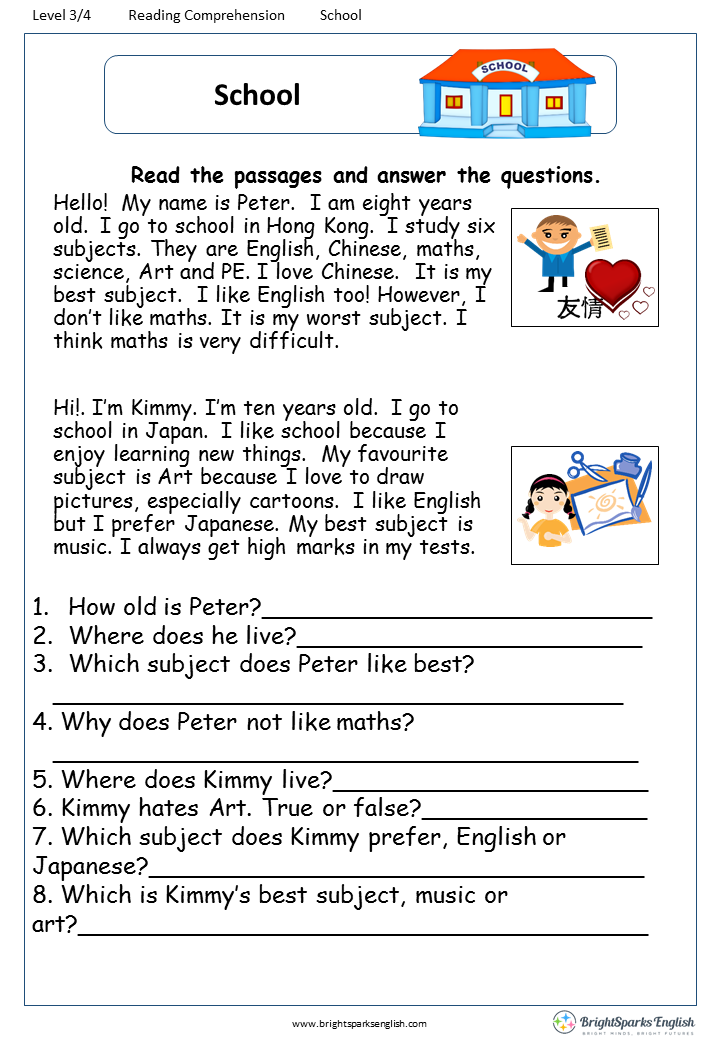 Not all second graders read at one level. But when second grade is split between levels I, J, K, L and M, more children will be able to find the right books to keep their motivation and confidence high.
Not all second graders read at one level. But when second grade is split between levels I, J, K, L and M, more children will be able to find the right books to keep their motivation and confidence high.
Developmental Reading Assessment (DRA)
The DRA, or Developmental Reading Assessment, helps identify how well students are reading independently.
This system matches the child with books on a numbered reading scale from 1 to 80 (it actually starts with A, but then all other levels are numbered. Confusing — yes, but unless your child is at the very beginning of reading, look for a number).
Your child’s score on the assessment is based on how well they perform against grade-level standards. The DRA looks at your child’s reading ability in three areas.
- Reading fluency
- Reading accuracy
- Reading comprehension
Like GRL, the different grade levels contain several DRA levels. For example, second grade includes DRA levels 18 to 28.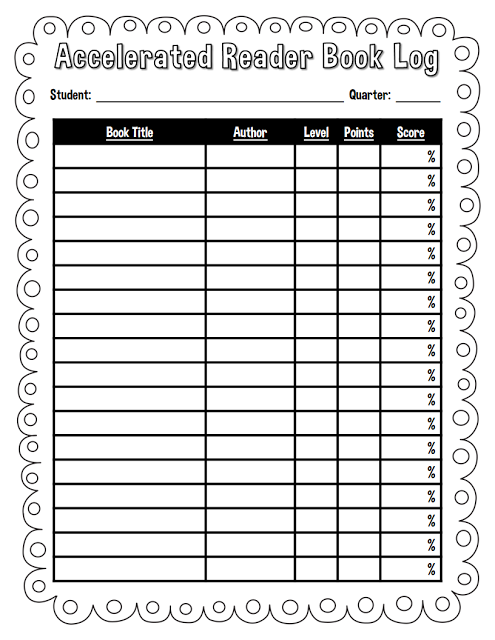 Once your child’s reading level is determined, they will be paired with leveled books to help them progress and improve.
Once your child’s reading level is determined, they will be paired with leveled books to help them progress and improve.
Lexile measurement
The Lexile framework for reading is a measurement system that includes two different measures — both a student assessment and a system for measuring book levels. Your child’s Lexile reading measure is determined from a school or state-wide test that checks for reading comprehension.
A Lexile reader measurement can fall between BR for beginning readers (which is below 0L), to above 2000L. Your child’s reading level can then be paired with books using their Lexile text measurement.
Over one million books, websites and other texts have received a Lexile text measure. Lexile recommends choosing books or texts for your child that fall between 100L below to 50L above their reading measure. This is deemed your child’s reading comprehension sweet spot.
Don’t know where your child falls? Talk to their teacher to see if their school uses the Lexile assessment. If so, they can provide you with your child’s most current measure.
If so, they can provide you with your child’s most current measure.
The Lexile framework is great for pairing more advanced readers with books that are still age-appropriate. If your child is reading above their level in the third grade, you don’t necessarily want them reading books with themes meant for seventh graders. Ask their teacher or use the Lexile website to discover age-appropriate books that will still hold their interest.
Accelerated Reader (AR) Levels
Your child’s Accelerated Reader (or AR) level is determined from a computerized test. After reading a book of their choosing, your child takes an online test on the book to measure their reading comprehension and earn points.
Based on the test score, your child’s teacher or librarian can help recommend more books to match your child’s level. If they struggled with their last book, easier options will be given. If they had zero trouble understanding the book, they’ll be encouraged to choose more difficult texts moving forward.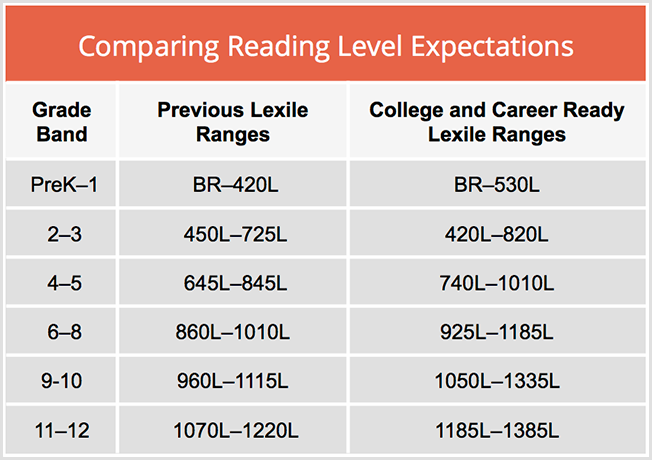
The AR reading levels fall on a numeric scale that closely correspond with expected grade levels. A second grader in the fourth month of the school year will, on average, be reading books at level 2.4. A fourth grader in the first month of the year will average level 4.1, and so on.
Reading level correlation chart
We’ve discussed several different reading measures, but how do they correspond with expected grade levels? And how does each measure relate to the others?
Use this handy chart from Reading A-Z to see how your child’s reading level fits into the different systems. Or check out the one below from Traci Clausen.
Reading level FAQs
1. How can I find level-appropriate books for my child?
First, ask their teacher or the school’s librarian for recommendations. They know your child’s interest and reading ability better than any computer resource. They will also be up to date on children’s books, including what is on level but also age-appropriate for your child.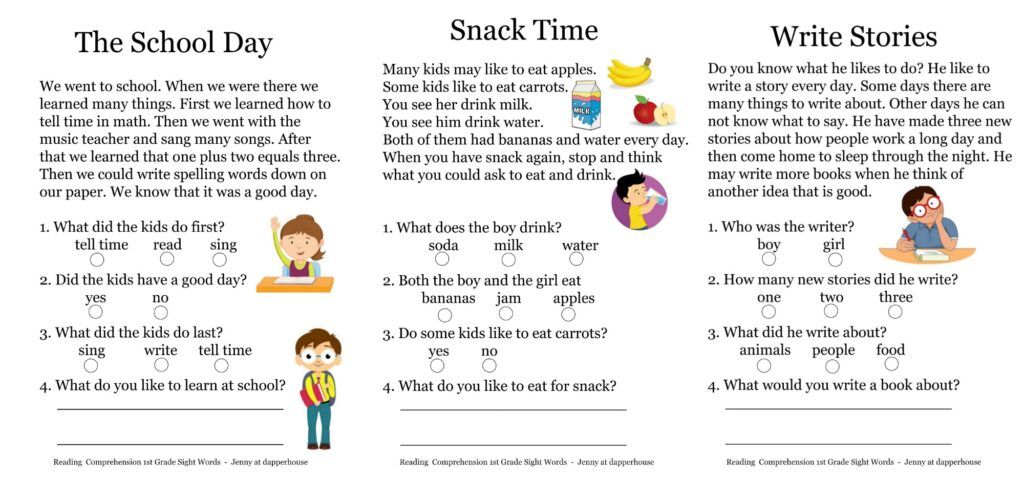
There are some great resources online for finding leveled readers your child will love:
- Find the right books that match your child’s Lexile measure.
- Check out the Accelerated Reader Book Finder if your child uses Accelerated Reading.
- Use the Scholastic Book Wizard to discover a book’s level or to find leveled recommendations.
2. How can I help my child improve their reading?
The short answer — encourage them to keep reading, whether they’re using books or online programs.
The more exposure they have to books, the better. Just be sure to choose book topics that lineup with their interests. Does your second grader love dragons? Try a simple fantasy chapter book. Does your fourth grader adore lemurs? Look for children’s non-fiction books about the creatures of Madagascar. If it’s something they’re interested in, they’ll be excited to read and learn.
If it’s a struggle to get your child to pick up a book, don’t stress! There’s reading to be found everywhere.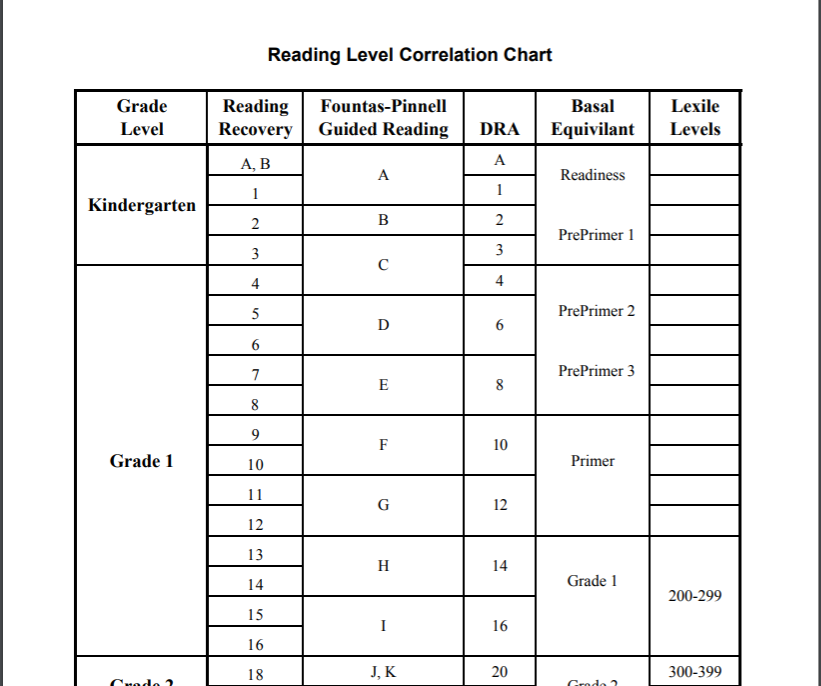 Instead of arguing over reading time, invite your child to play an online game. Role-playing games (and even those online mini-games) require a good amount of reading. Or choose educational language arts games like Prodigy English. Games keep learning fun, and when your child loves learning and reading, they’ll be set for life!
Instead of arguing over reading time, invite your child to play an online game. Role-playing games (and even those online mini-games) require a good amount of reading. Or choose educational language arts games like Prodigy English. Games keep learning fun, and when your child loves learning and reading, they’ll be set for life!
3. What should I do if my child is struggling with reading?
First off, take a deep breath. There is so much pressure on both kids and parents to be reading earlier and earlier. It’s okay if your kindergartener isn’t reading yet. If your third grader is reading at a second grade level, they’ll catch up. Your primary role as a parent is to encourage them to keep trying, and keep their confidence and joy of reading top of mind.
To help encourage young or struggling readers, match them with books they are excited to read. Take them to your local library and let them choose the books that call to them.
If a book is beyond their level, but they just have to have it, let them enjoy it.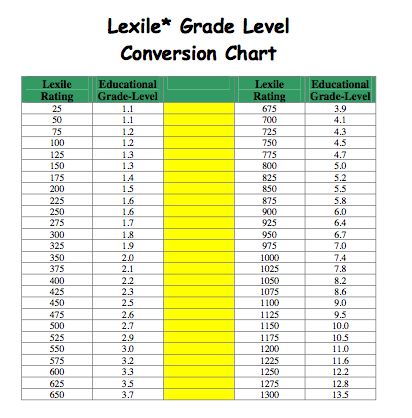 It may be just the challenge they need, or they may simply enjoy the pictures. If it’s too tricky, let them know that you’re available to help. Your child is never too old to enjoy a read-aloud.
It may be just the challenge they need, or they may simply enjoy the pictures. If it’s too tricky, let them know that you’re available to help. Your child is never too old to enjoy a read-aloud.
And don’t forget the reading that happens every day. Have them help you read the recipe for tonight’s dinner. Or ask them to show you their newest video game. Listen as they explain the characters and stories. Reading comprehension presents itself in a variety of ways outside of books and standardized testing.
Above all, remember your child is learning so much more than their reading level score can show. Reading levels can be a great tool, but they are not the only measure of your child’s reading ability. Follow your child’s lead, take the pressure off and watch them grow into reading in their own way.
Reading games and activities can help supplement coursework
Reading can be so much fun! It’s too easy to get caught up in grade levels, whether your child is “ahead” or “behind”.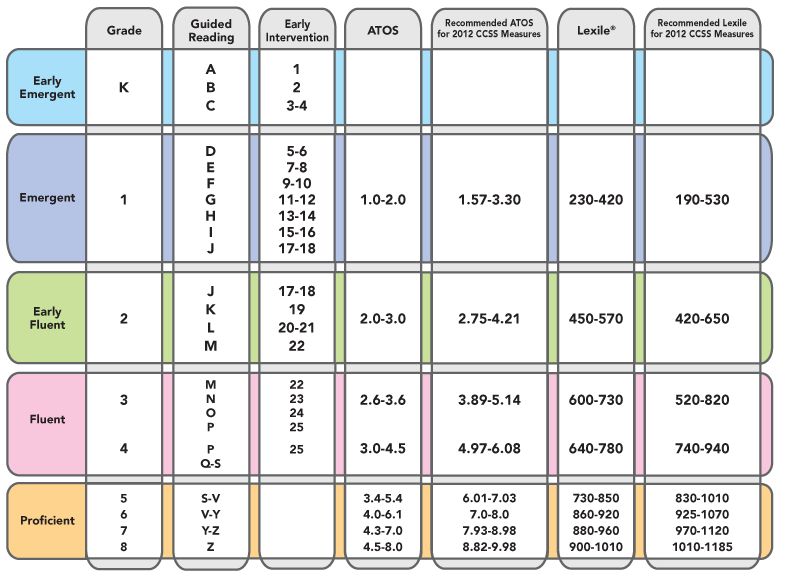 All of this can make us lose track of the magic a good story holds.
All of this can make us lose track of the magic a good story holds.
Bring some of that magic back with fun reading games and activities your kids will love. There are so many ways to read, explore and learn together.
Explore a fun, game-based learning adventure with Prodigy English. While kids play, they'll explore a world of their very own, gathering resources and earning rewards. Every skill-building question they answer gives them more energy to get creative and keep learning!
Sign up for a free parent account today to track and motivate their learning.
Sign up nowHow To Determine Your Child’s Reading Level And Choose The Best Books
When you sit down to read a book, you want to enjoy the story in front of you. The same is true for your child. That’s why uncovering your child’s reading level is an important step in fostering their love of words from a young age!
Consider the different factors that allow kids to enjoy the books they read.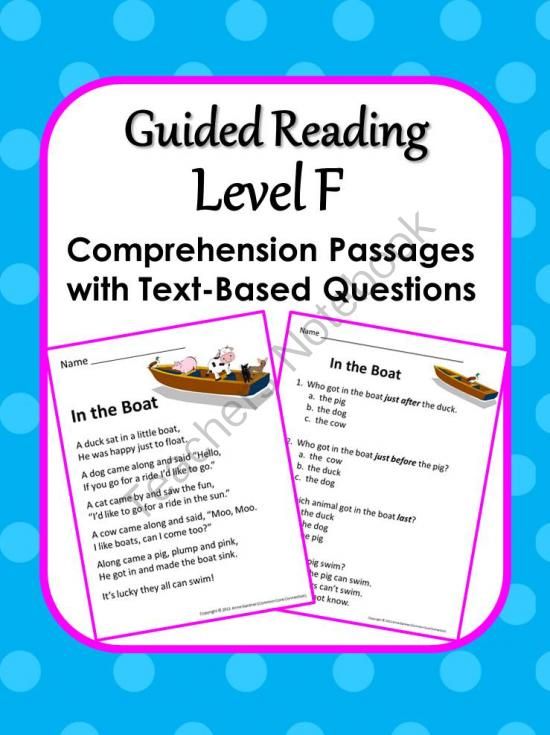 For example, does it tie into their interests, and is it slated as an appropriate option for their level? By answering these questions, you can make sure they’re reading books that are just right for them!
For example, does it tie into their interests, and is it slated as an appropriate option for their level? By answering these questions, you can make sure they’re reading books that are just right for them!
If your child is in school, you’re probably no stranger to jargon like “reading level.” But what exactly does Lexile Framework, Guided Reading Levels (GRL), or Developmental Reading Assessment (DRA) actually mean?
Additionally, if your child is just starting to read on their own (or already reading independently) and is learning from home, how can you figure out what reading level is right for them? If any of these thoughts have crossed your mind, you’ve come to the right place.
We’re here to answer your questions so you and your child can sit down and enjoy a good book together!
What Is A Reading Level?
A reading level is simply a measure of your child’s ability to read text. It reflects how well your little one can read independently. Importantly, reading levels help you choose books that are a good match for your child while still presenting a challenge.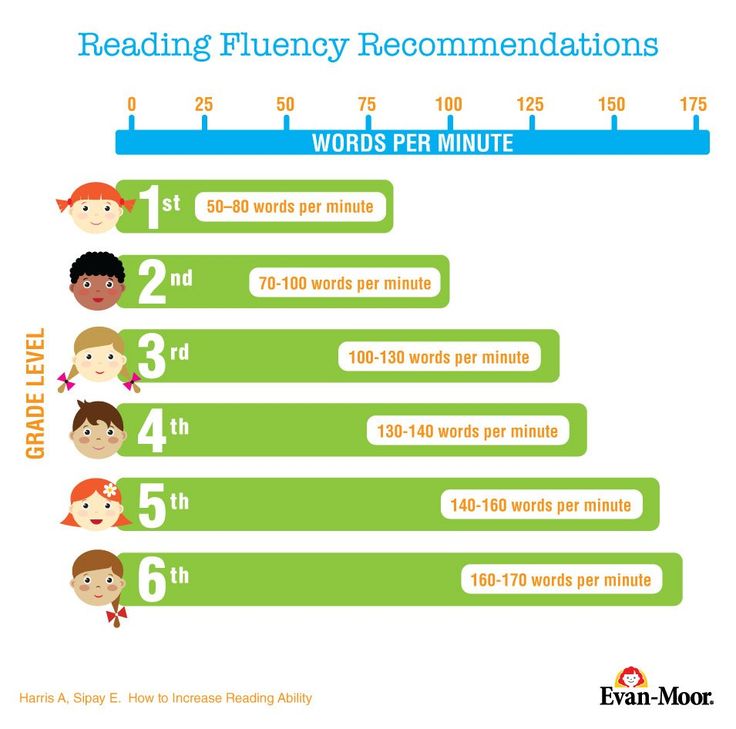
Keep in mind these levels are meant to be helpful, not stressful. They don’t limit your child, but, rather, help them blossom into a fluent, excited reader.
When your child reads books that are appropriate for their current reading level, it boosts their confidence so they can truly enjoy reading! Also, knowing what level your child is at allows you to work with them to improve their skills.
That being said, it’s important to remember that children are unique and develop differently. Comparing your child to their peers isn’t necessarily the best approach when trying to assess their reading ability.
Why Is Determining Reading Level Important?
It’s helpful to determine your child’s reading level so you can find books that are appropriate for them to read on their own: not too difficult but challenging enough to encourage growth.
Reading level classification is a convenient tool you can use when searching online or at the library. And when you provide books that are on your child’s level, you create excitement and build their confidence, which can lead to a lifetime love of learning and reading!
If you’re looking for ways to help your little one read at the best level for them, Our new app HOMER Learn & Grow has a Stories section that gives age-appropriate story recommendations!
This is a great resource that takes your child’s specific interests and recommends stories just for them.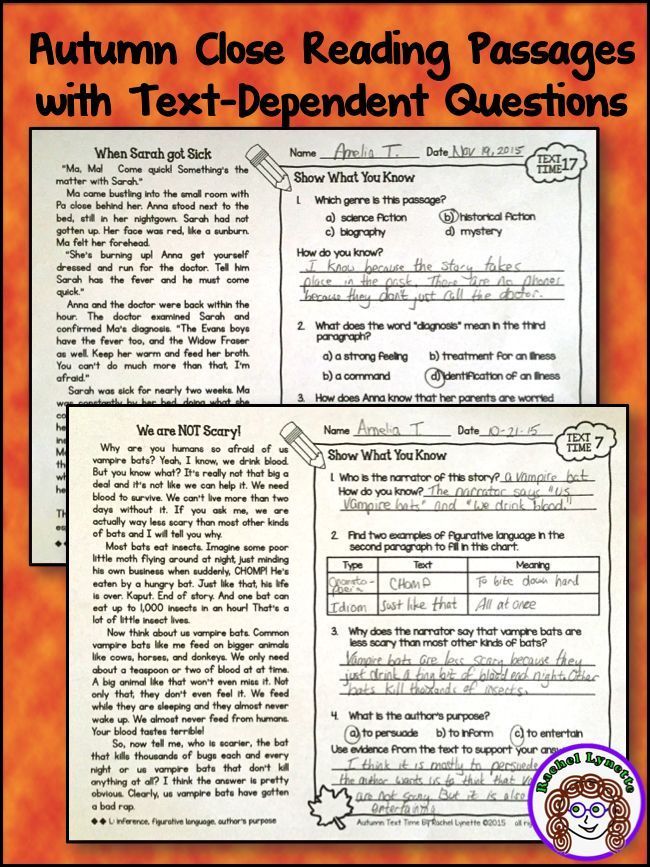 What’s more, your child can choose to read along or read on their own.
What’s more, your child can choose to read along or read on their own.
How Is Your Child’s Reading Level Measured?
Your child’s reading level is usually measured at their school in first or second grade, and we’ll show you how that’s done. Here’s a tip: since your child’s teacher knows their reading level, consider asking the teacher (or the school librarian) for books your child can read at home.
Don’t worry if your child isn’t in school yet or if they’re homeschooled. We’ll show you how you can measure their reading level at home, too!
Before we dive in, it’s important to note that we think of books for kids at three levels: independent reading, instructional reading, and frustrating to read.
As the names indicate, independent reading books are ones a child can read with ease and without support from an adult.
Instructional ones are the books just above independent that teachers might use to stretch a child’s reading as they offer support while the child makes that next step. Finally, frustrating books are too hard for a child to read even with adult guidance.
Finally, frustrating books are too hard for a child to read even with adult guidance.
Now that you have an idea of how to think of the different books your child might encounter, let’s talk about the tools used for determining or describing reading levels.
Lexile Framework For Reading
Lexile Framework For Reading is an educational tool that ranks books by order of their difficulty using a scale called a Lexile. Usually, your child’s teacher will determine their Lexile reading level and then choose books that have a matching score.
The Lexile score, or measure, describes your child’s reading ability and matches them with books and other reading materials. This measure ranges anywhere from 0L to 2000L.
Kids are encouraged to read within their Lexile “range” — 50L above to 100L below their actual level. For instance, if your little one is reading with a Lexile measure of 500L, they would read books ranging anywhere from 400L to 550L.
Using standardized assessments, schools will often measure a child’s reading level several times a year to help them select books that are appropriate for independent reading.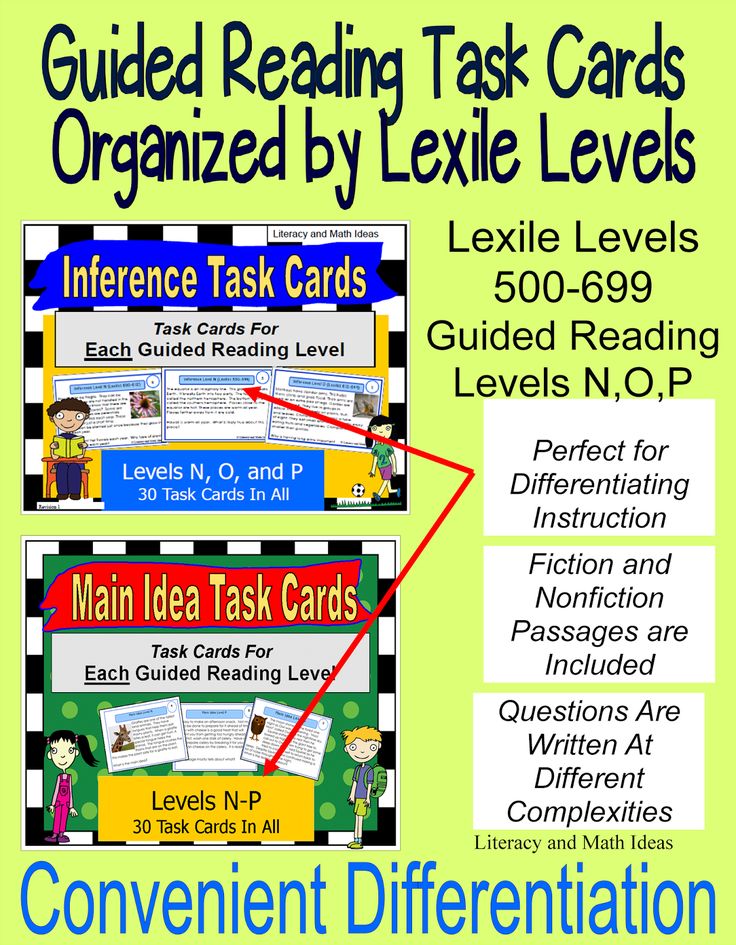
Guided Reading Levels (GRL)
GRL is a guided reading system used in some schools.
To determine reading levels using GRL, children sit one-on-one with their teacher and read from a book that’s considered standard for their grade level — a “benchmark” book. GRL books range from A to Z with A being the easiest.
While reading these books, the teacher will take notes on any missed words and ask comprehension questions, such as, “When did the story take place?” or, “What was the problem in the story?”.
Through guided instruction, the teacher will gradually move children into more difficult books.
Developmental Reading Assessment (DRA)
DRA is a standardized reading test given by teachers or reading specialists. As with GRL, children sit individually with the test administrator and read a book.
Several factors are taken into consideration to determine reading level, including:
- Reading comprehension
- Phonemic awareness
- Fluency
DRA books are labeled with an A for the easiest books and then move into a numerical grading system.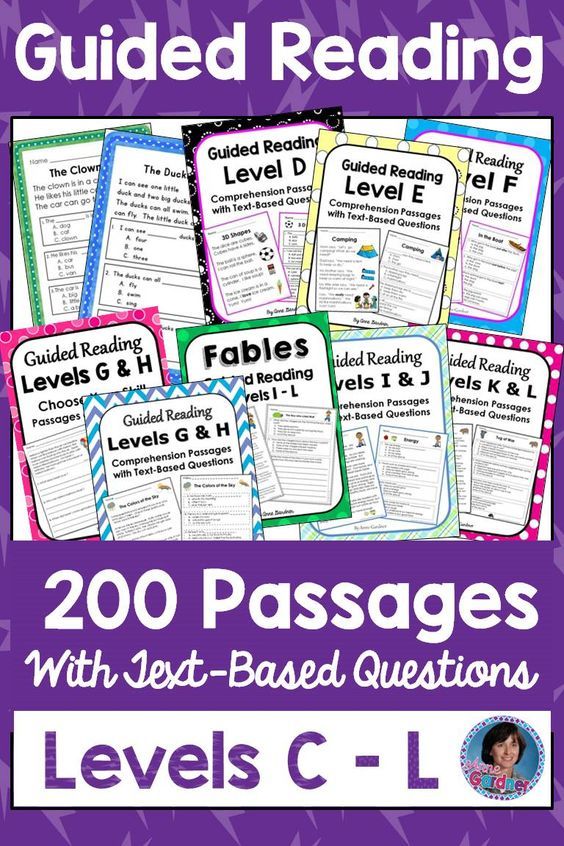 The levels range from 1 to 80 with 1-3 representing a kindergarten reading level and 80 representing an eighth-grade reading level.
The levels range from 1 to 80 with 1-3 representing a kindergarten reading level and 80 representing an eighth-grade reading level.
Once a child has a DRA or a GRL level, a teacher or parent can search for the reading level of any particular book and can usually discover either the Lexile, DRA, or GRL of that particular text. Here’s a chart for your reference.
At-Home Reading Levels
If you’re looking for a way to find out your child’s reading level without using any of the methods listed above, you might try the five-finger rule.
For the five-finger rule, choose a book and flip to any page. If your child seems to have trouble reading more than five words on the page, it’s a good indicator that the book is too advanced for them.
To be sure, though, you can have your child try another page, especially if they seem eager to read a particular book.
This can be a helpful strategy, but it’s OK to let your child try a book and see how the reading goes.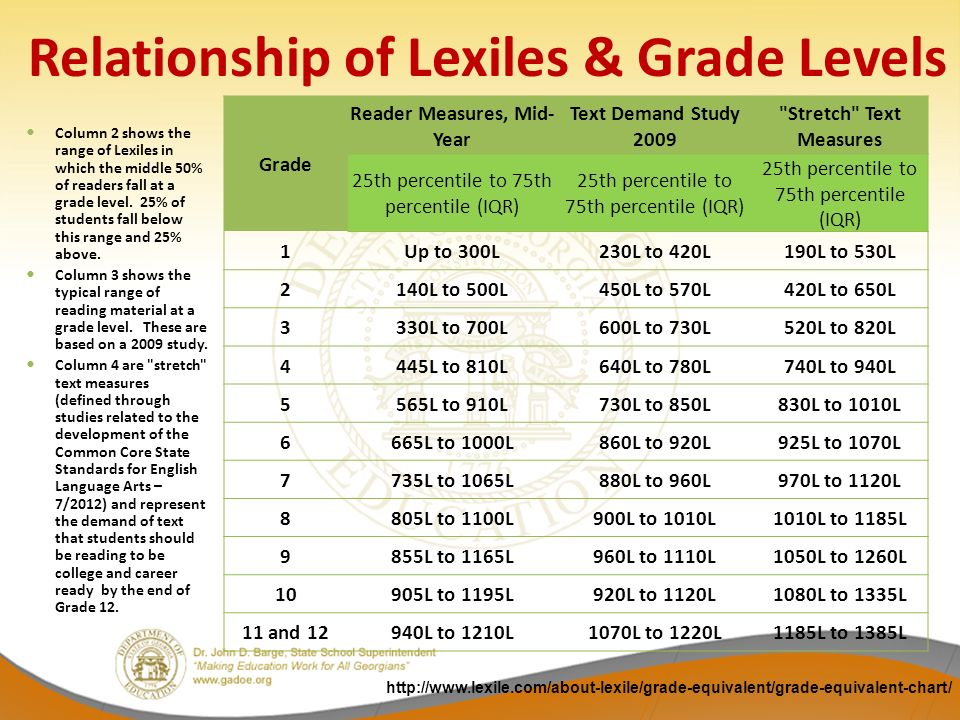 If a book is too hard, most kids will figure that out — and there is nothing wrong with reading books that are too easy!
If a book is too hard, most kids will figure that out — and there is nothing wrong with reading books that are too easy!
Sometimes a child may be interested in a book that’s a little too hard for them. If this happens, we encourage you to read aloud to your child. You can also read together by alternating pages, paragraphs, or sentences.
It’s important not to completely avoid books that may be a little above your child’s reading level.
Even if your child struggles a bit to read them without assistance, these books can still be beneficial in helping build their vocabulary, improve comprehension, and increase general knowledge — not to mention, encourage their love of reading!
When your emerging reader seems overwhelmed by one book, you can always give the five-finger rule a try with other books until you find the right match. And if your child is particularly interested in a topic, you can always read the book to them and stop on words you know they can read.
Also remember that when a child is really enjoying a book and highly motivated to read it, they will read at a higher level than if the material is not as interesting to them.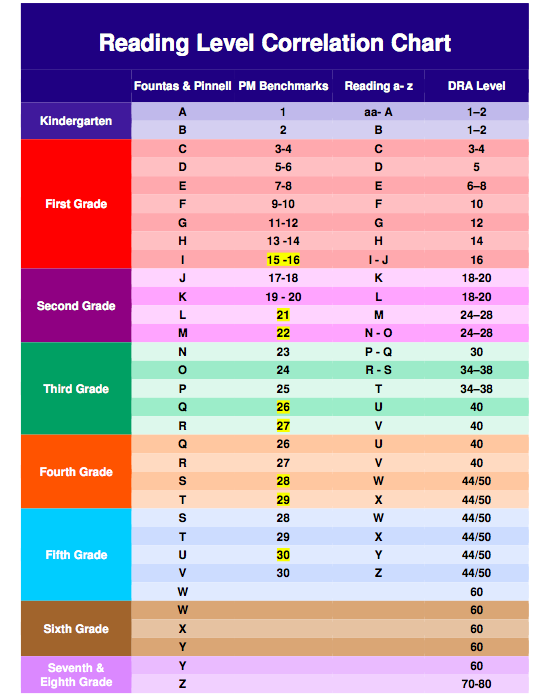
Tip: Most libraries and bookstores have books arranged by reading level so you can easily choose the best one for your emerging reader!
Feel free to ask librarians and knowledgeable staff at bookstores to offer suggestions. You could even say something like, “My child happily read a Clifford book; can you suggest others at the same level?”
How To Help Your Child Become A Stronger Reader
As we mentioned earlier, you can easily determine your child’s reading level at home so that you can help them choose books that are just right! We suggest incorporating some of the tips below to help your child become a stronger reader.
Start With Clues
- Is your child using “sounding out” techniques to figure out unknown words?
- When your child reads, are they getting tripped up by sight words — common words that are hard to sound out?
- Is your child using pictures to help them understand what is written on the page?
- Is your child using context clues to figure out what word makes sense to come next as they read sentences?
Check Vocabulary
- Play games with your child to see what words they know.
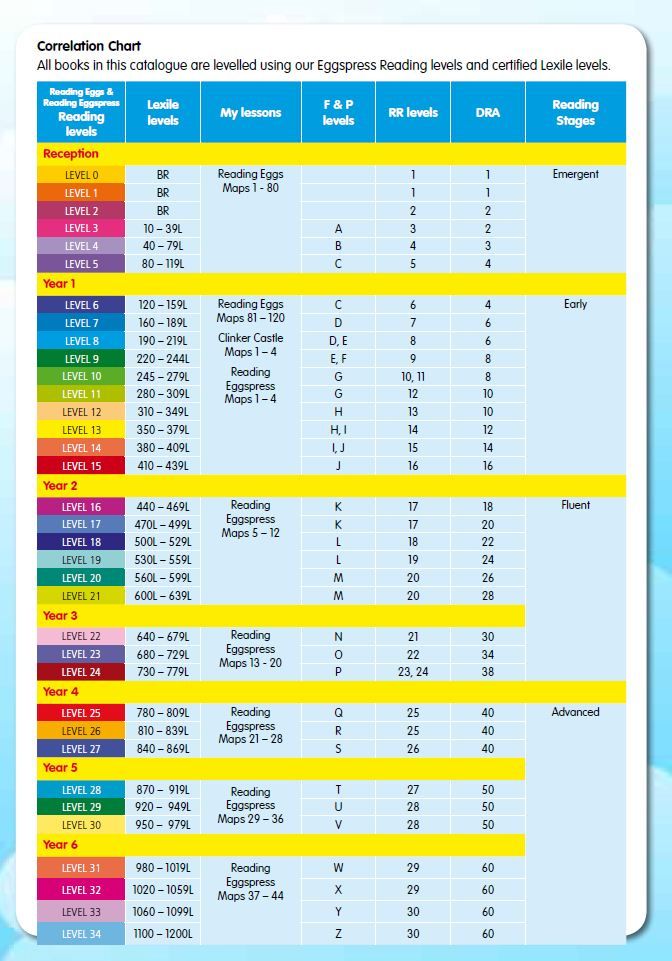 For example, say a sentence and point out one word in the sentence. Then ask them if they can come up with a different word (synonym).
For example, say a sentence and point out one word in the sentence. Then ask them if they can come up with a different word (synonym). - Play synonym games to see what words your child knows. For example, challenge yourselves to think of 10 or more ways to describe speaking (shout, whisper, mumble).
While you’re talking with your child, describe something specific from your day. Make sure to use interesting adjectives, and don’t hold back from using sophisticated vocabulary when talking with your child.
You can help your child’s vocabulary grow through day-to-day conversations and activities!
Ask Comprehension Questions
Understanding what they read is an important part of your child’s reading journey.
- To check for reading comprehension, we suggest pausing every other page to talk about what you’ve just read. Make this a natural reaction to the story, like you’re thinking aloud about the story or characters, so that it doesn’t feel like a test.
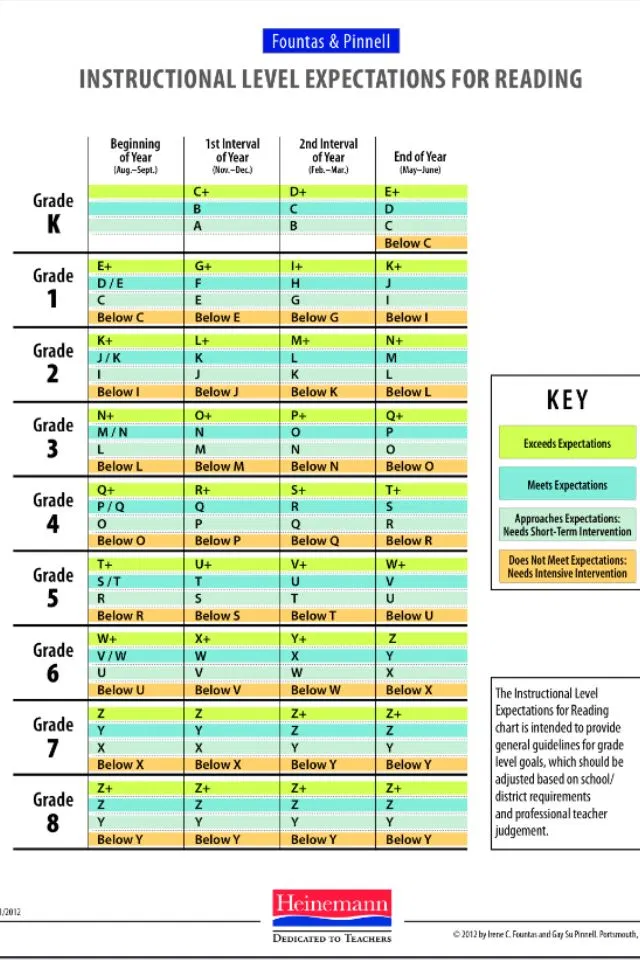
- Consider encouraging your child to act out and retell the story (for younger children).
- Try discussing themes/lessons with your child (for older children). Remember: this isn’t a test, but a conversation between book lovers!
Talk To Your Child
When most people implement strategies to help their children improve their reading skills, they often forget about the importance of verbal communication. It’s essential to talk to your child frequently in short and simple sentences.
This includes singing songs, telling them wonderful stories, reciting fun nursery rhymes, and describing the world around them. All of this exposes children to lots of different words. It also helps them learn that language is a powerful tool for communication.
Discover Your Child’s Favorite Books
- Children often choose books that are a little below their actual reading level. At home, this is a good thing. It keeps reading fun and exciting!
- We recommend choosing books that interest your child — with a certain character or activity they like — so they’re curious and excited about reading.
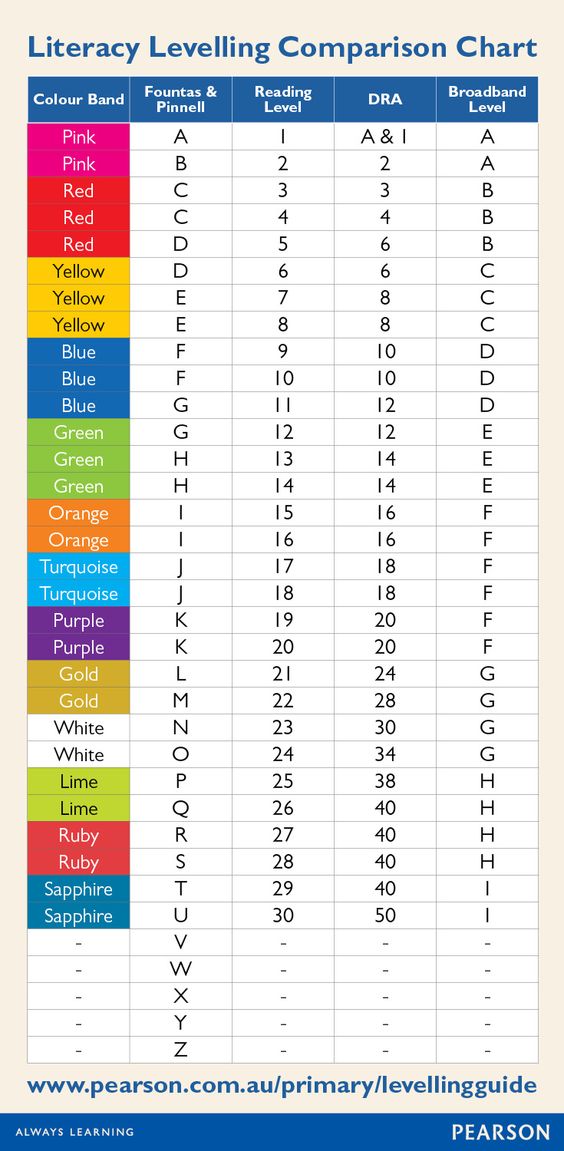
Reading books your child enjoys together can encourage their love of reading. And letting them read those same books to you can boost their confidence over time.
Together, these two activities increase your child’s fluency and reading enjoyment!
Create A Reading Corner
Establishing a reading corner in your house can benefit your child. The setup doesn’t need to be elaborate. This can be a simple, quiet, private area where your child can confidently read independently or with you.
It’s also great for the spot to be well-lit and filled with lots of books your child enjoys reading.
Is Reading The Same Book Over And Over OK?
Just like you might pick up an old favorite book to read, your child may do the same, and that’s OK! At least you know they’re enjoying a good book and the process of reading!
Rereading books can have many benefits for a child, including:
It allows children to get more from the text. Have you ever developed a deeper understanding of a story after rereading it? That’s because the more you engage with a story, the more you can take away from it.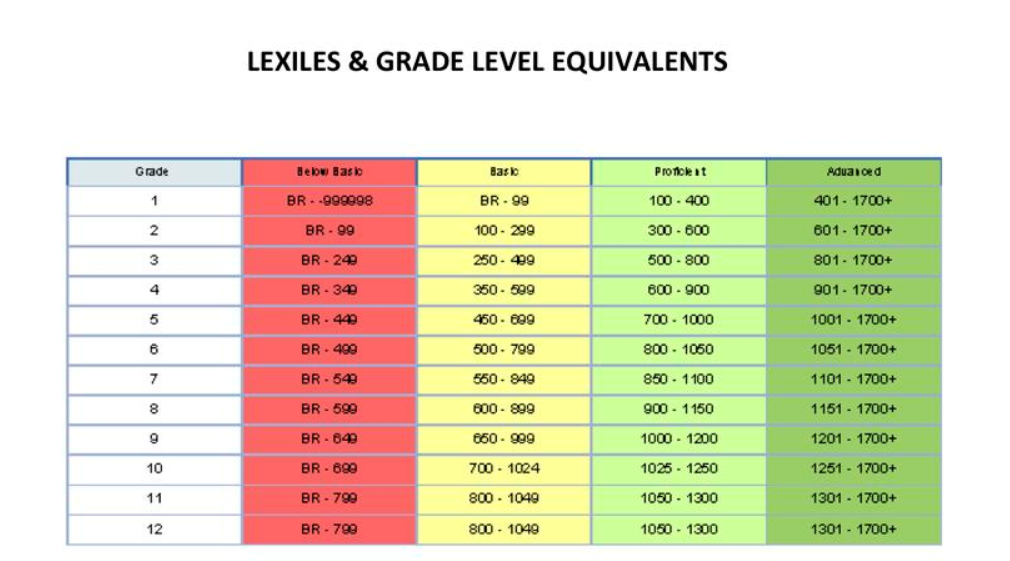
You can pick up on new information, establish connections between yourself and some of the characters, and even improve your understanding of the overall story.
Similarly, allowing your child to read their favorite books for the second, third, fourth (or more) time will enable them to get more from the story.
It also allows for bonding. Did you know that rereading books can help bring your family closer together?
Many of us remember a couple of books that our family read together regularly. This can be a holiday book or a favorite story. Rereading is a great way to get the whole family involved, as everyone can take turns reading and connecting on the same story.
What’s more, reading familiar books can actually help develop a young reader’s fluency. It allows them to learn the words and helps them become familiar with narrative structure or storylines (i.e. beginning, middle, and end), which builds reading comprehension later on.
So feel free to let your child choose the same book over and over!
FAQs About Reading Levels
What Reading Level Should My Child Be In Each Grade?
It’s challenging to answer this question because each child is different and will naturally develop at their own pace.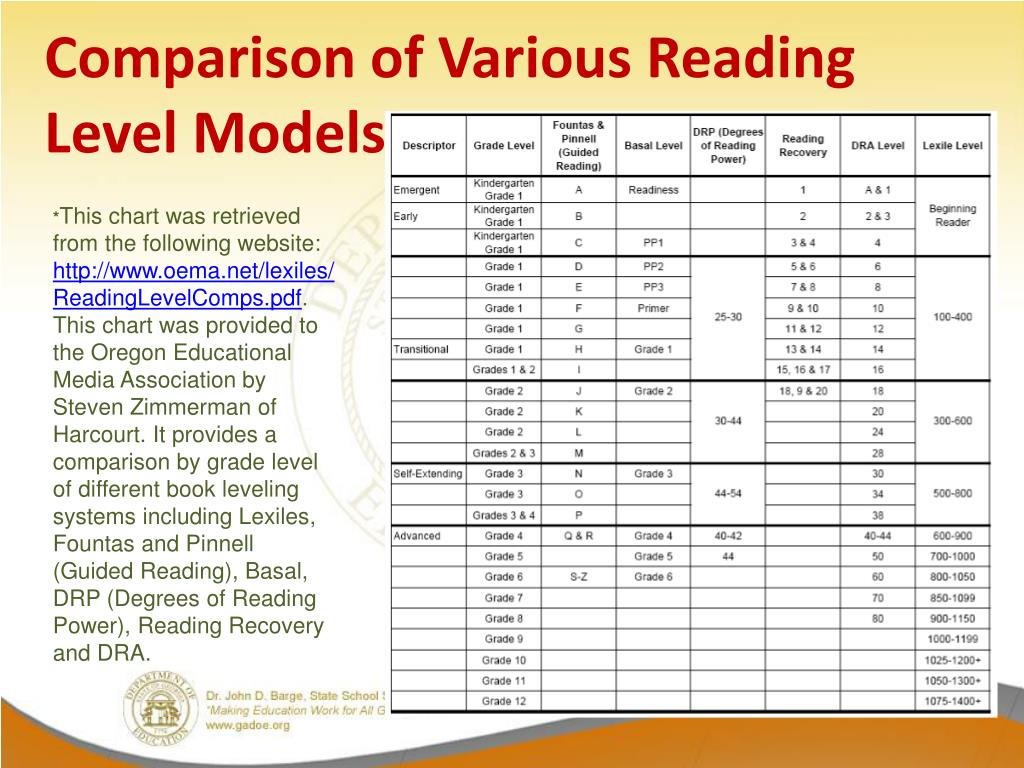 For example, just because your child’s friend has started reading fluently doesn’t mean your child will be able to do that yet.
For example, just because your child’s friend has started reading fluently doesn’t mean your child will be able to do that yet.
While no parent wants their own child to be a little behind compared to their peers, putting too much pressure on them to “catch up” might actually have an adverse effect. In fact, they might feel overwhelmed by the pressure and develop a negative attitude toward reading.
It’s also important to note that there’s no direct link between a certain Lexile measure and a specific grade level. When using any of the reading level measures we mentioned, remember that they are an estimate of a child’s performance and shouldn’t be interpreted literally.
Also, if you’re really concerned about your young learner’s development, you can always address those concerns with their teacher or another professional. They can offer tips and advice on how to best work with your child.
Finally, remember to be patient and positive no matter what. With lots of time and effort, your child will develop a lifetime love of reading!
Who Can Help Me Choose Books That Match My Child’s Reading Level?
The best place to start is to consult your child’s teacher.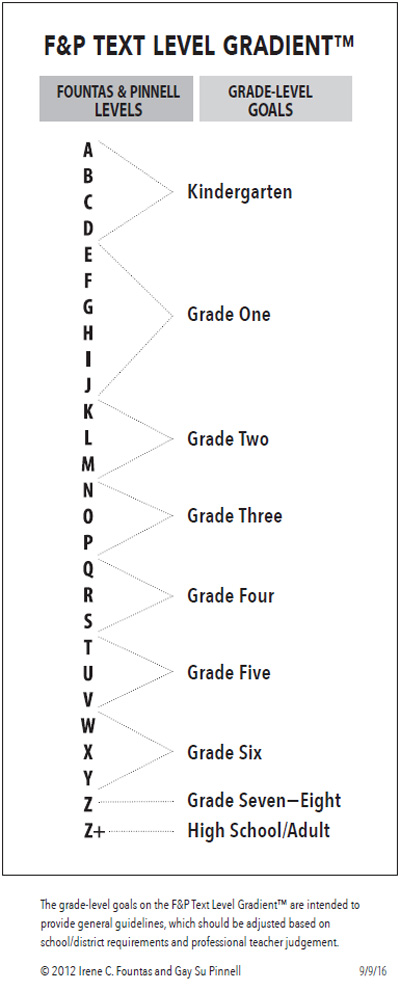 They will have the expertise to guide you in buying the right books for your child.
They will have the expertise to guide you in buying the right books for your child.
It’s also possible for you to look up most books online and find their reading levels. Furthermore, for beginner readers, there are publishers who label books in stages with age and/or grade suggestions attached.
If you’re homeschooling, you can also reach out to your local librarian or bookstores. As people who spend each day surrounded by books, they often have knowledge on this topic and may be able to recommend a few relevant books in your child’s reading level.
What If My Child Is Reading At A Lower Level?
The last thing a parent wants to hear is that their child’s reading level isn’t on par with their peers. But what can you do if, from the assessment used at your child’s school, you find out that your young learner is reading below the average grade level?
Firstly, it’s important not to panic. As mentioned earlier, kids develop reading skills at different stages of their development.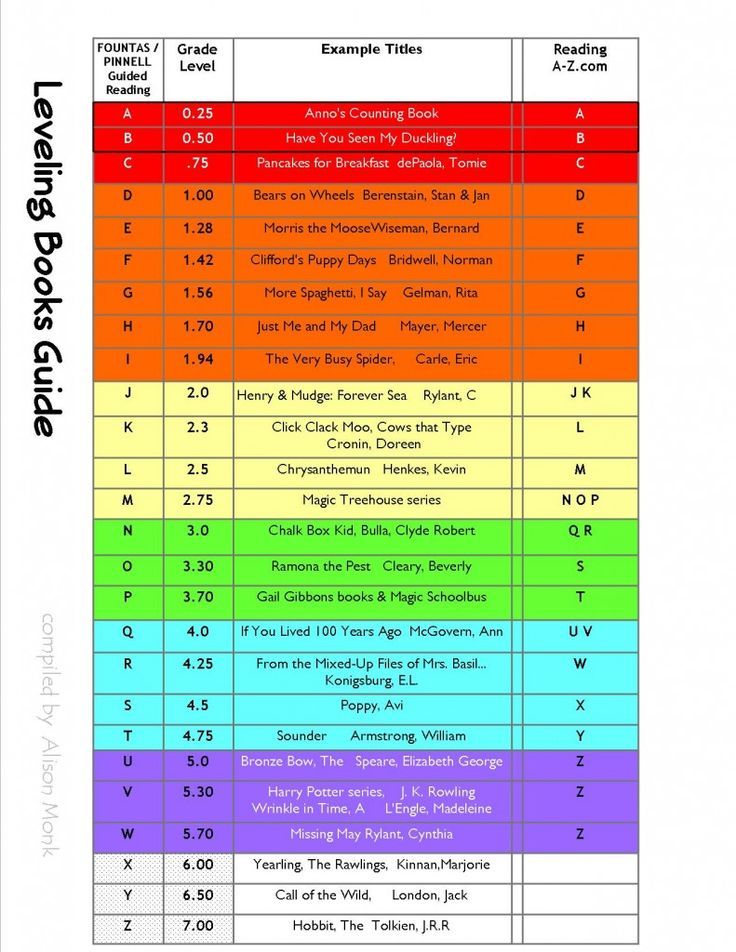 Some children might be early readers, while others may take time to get there.
Some children might be early readers, while others may take time to get there.
The most effective way to help your child improve their reading level is by continuing to encourage reading at home. While reading, remember to discuss the content to ensure comprehension.
Reading For Fun
From assessments to the five-finger rule, determining reading levels varies across the board. No matter which method you choose, remember these measurements are meant to be helpful and encouraging, not stressful and limiting.
Keep this in mind when assessing your young learner. You don’t want your child to sense any stress about their abilities, as this might overwhelm them and have an adverse effect on how they view reading.
While reading is an essential early learning (and lifelong) skill, you want your child to LOVE reading and not only view it as a test of their intelligence.
At the end of the day, the way reading makes your child feel is more important than their reading level.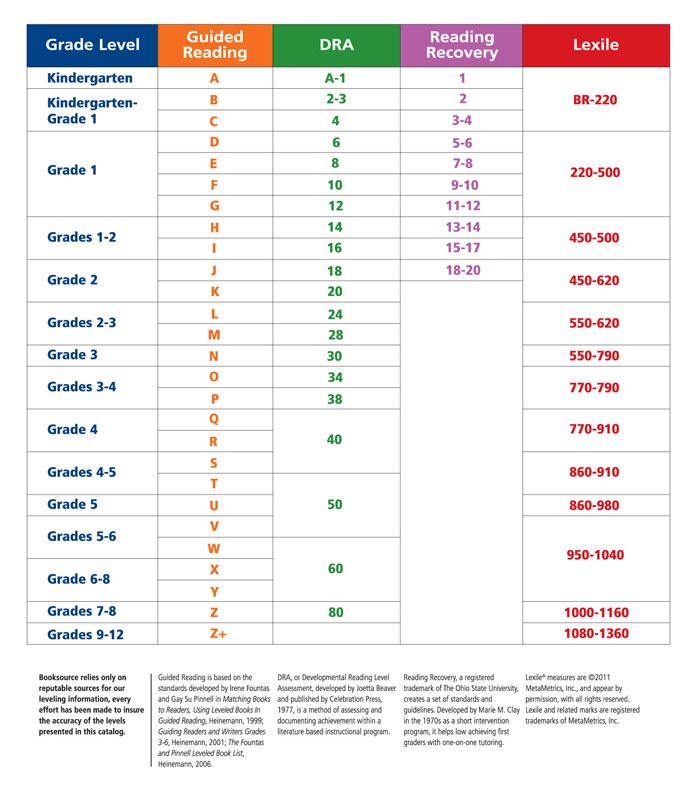 Each child learns in a way that’s special and unique to them.
Each child learns in a way that’s special and unique to them.
The HOMER Road To Reading
The road to discovering how to read can be a fun ride, but sometimes it’s bumpy. This is why we’re more than a learning program. We’re your learning partner.
If you’re looking for a resource to help develop your child’s love of reading and learning, consider taking a look at the HOMER Learn & Grow app. It’s full of stories curated based on your child’s interests!
When your child develops a love for reading, they’ll move up to the next level before you can say “Developmental Reading Assessment”!
Author
standards for grades and quarters
Reading is a key skill that opens the gate to the land of knowledge for a child. Thanks to this skill, children learn about the phenomena and events of the world around them, get acquainted with the characters and actions of people, meet new problems and ideas.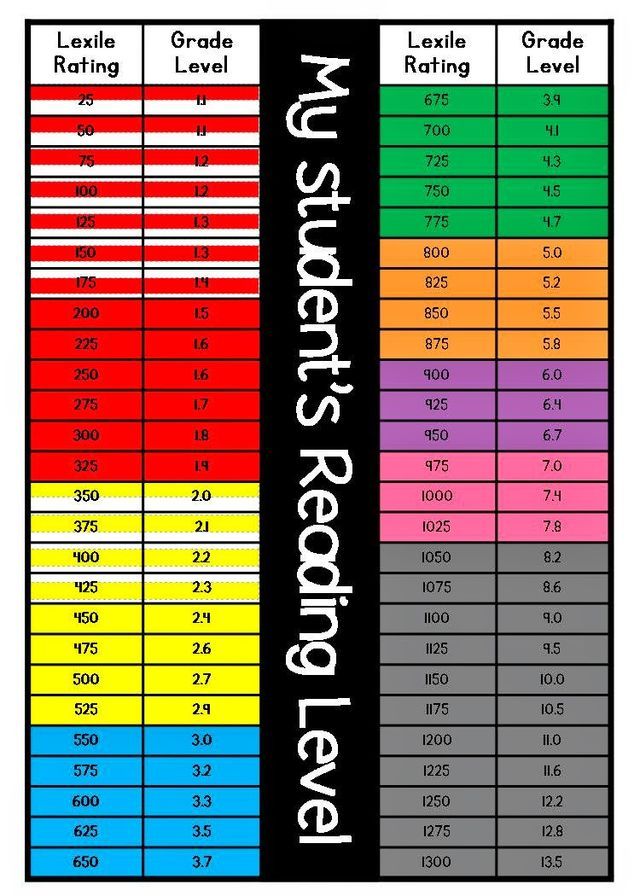 This skill helps them to broaden their horizons and ideas about the world, develops critical thinking and trains cognitive abilities - attention, imagination, memory. Reading is the foundation for further successful learning.
This skill helps them to broaden their horizons and ideas about the world, develops critical thinking and trains cognitive abilities - attention, imagination, memory. Reading is the foundation for further successful learning.
To understand how well a child develops this skill, it helps to check the reading technique. Reading technique is a multifactorial test that characterizes the development of a skill from different angles. In the technique of reading are evaluated:
- reading speed,
- reading method,
- reading awareness,
- correct reading,
- expressiveness of reading.
A difficult reading skill consists of both a technical and a semantic component and is aimed at achieving the main goal - understanding and assimilation of the information read.
Reading technique parameters
Let's consider all the components of reading technique in more detail.
- Reading speed - the number of words read in a certain period of time.
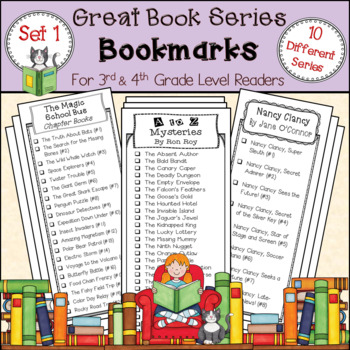 Often, parents focus on the formation of fluent reading, while the child makes many mistakes, does not understand and does not remember what he read. It is not necessary to force only speed, slower conscious reading and a gradual increase in tempo are better than fast mechanical reading with errors and inaccuracies.
Often, parents focus on the formation of fluent reading, while the child makes many mistakes, does not understand and does not remember what he read. It is not necessary to force only speed, slower conscious reading and a gradual increase in tempo are better than fast mechanical reading with errors and inaccuracies. - Way of reading — syllabic reading or reading the whole word, smoothly. With the development of the skill, the child has a gradual transition from syllabic reading to smooth reading in whole words.
- The correct reading of is characterized by the absence of errors and hesitation. Inattention, problems of diction lead to inaccurate reading, indistinct articulation and, as a result, to a distortion of meaning. Pay attention to the correct reading - this will be the key to competent writing.
- Reading awareness involves reading comprehension, awareness of the idea and meaning of the text, and in the future - this is the ability to catch the subtext, humor, irony, the attitude of the author.
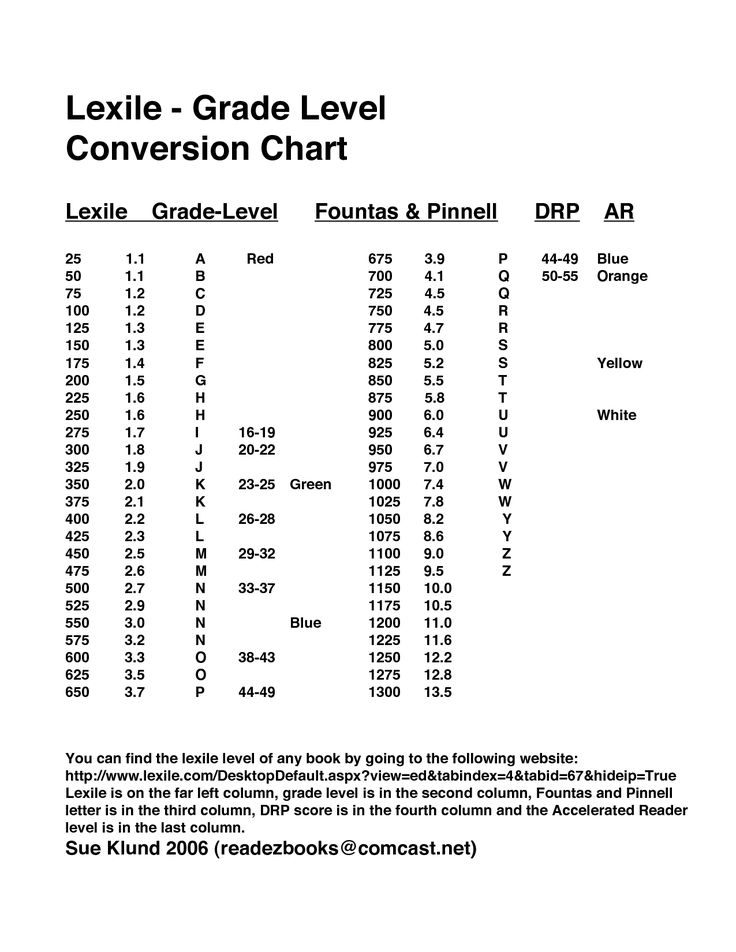 Interfering with reading comprehension can be low reading speed, distorted reproduction - guessing words, changing the shape of words, not reading endings.
Interfering with reading comprehension can be low reading speed, distorted reproduction - guessing words, changing the shape of words, not reading endings. - Reading expressiveness - the use of pauses, finding the right intonation, the correct placement of stresses. The expressiveness of reading is inextricably linked with awareness. When understanding what is read, it is easier for the child to observe the necessary pauses, select the correct intonation and place logical stresses.
Reading speed standards for elementary school
GEF standards determine the desired reading speed for a child by a certain point in learning, help to understand whether the development of a skill is successful or whether additional attention is required. Standards - indicative values; it is important to take into account the individual psychophysiological characteristics of each child and evaluate the growth of his personal indicators.
Grade 1 reading speed standards
Reading speed standards in grade 2
Reading speed standards in grade 3
Reading velocity
Reading speed, to which it is necessary schools, is reading at the speed of conversational speech, 110-120 words per minute.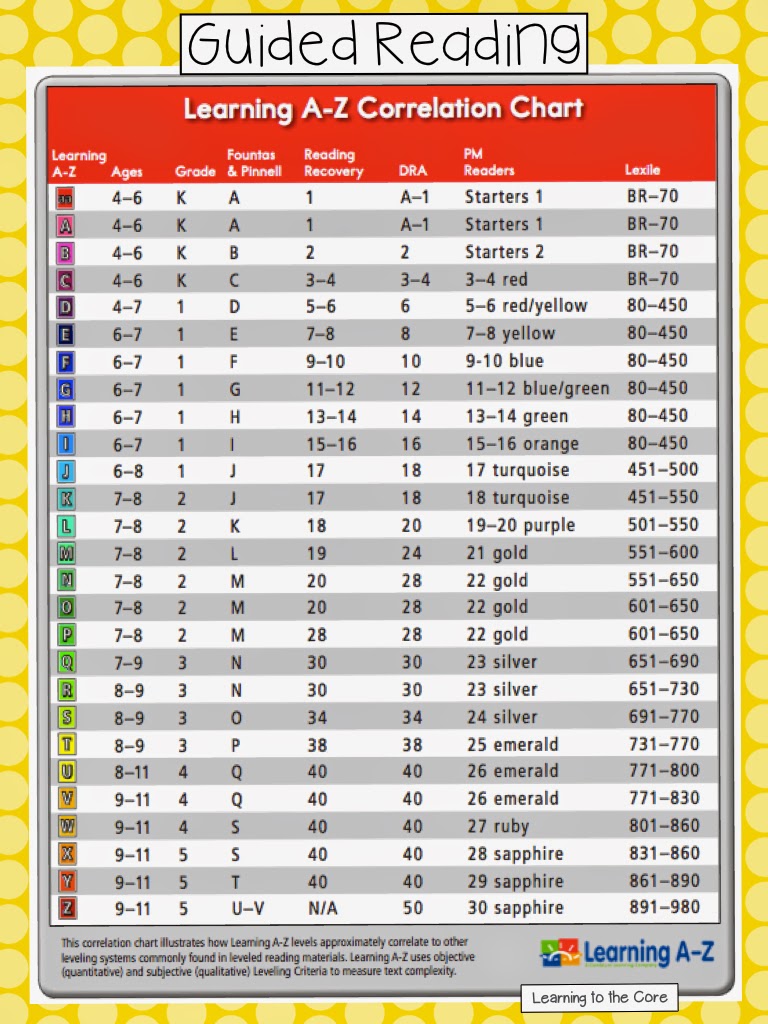 The human articulatory apparatus has adapted to this speed over time. And most importantly, the reading should be conscious, correct, expressive.
The human articulatory apparatus has adapted to this speed over time. And most importantly, the reading should be conscious, correct, expressive.
Other parameters of reading technique
Grade 1
At the end of the first half of the year. Reading is smooth syllabic, conscious and correct, with a clear pronunciation of syllables and words.
At the end of the second half of the year. Reading is conscious, correct, simple words are read as a word. Words with a complex syllabic structure can be read syllable by syllable.
Grade 2
At the end of the first half of the year. Reading consciously, correctly, in whole words. Compliance with logical stresses. Compound words can be read syllable by syllable.
At the end of the second half of the year. Reading meaningful, correct, in whole words. With observance of logical stresses, pauses and intonations. Syllabic reading is undesirable.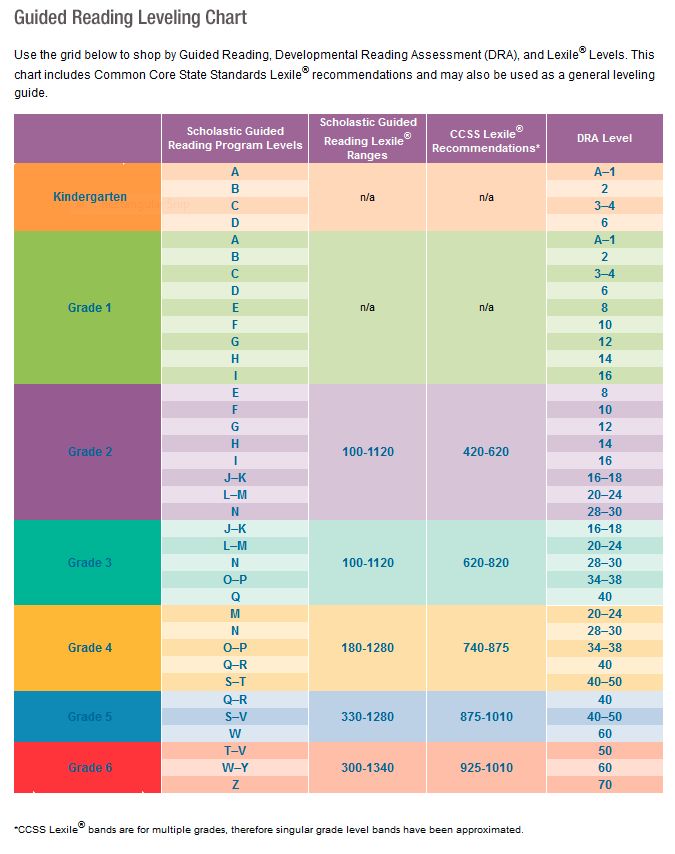
Grade 3
At the end of the first half of the year. Reading consciously, correctly, in whole words. With observance of pauses and intonations, with the help of which the child expresses an understanding of the meaning of what is being read.
At the end of the second half of the year. Reading consciously, correctly, in whole words. With observance of pauses and intonations, through which the child expresses understanding of the meaning of what is being read.
4th grade
At the end of the first half of the year. Reading consciously, correctly, in whole words. With the help of observed pauses and intonations, the child not only expresses an understanding of the meaning of what is being read, but is able to express his attitude to what he has read.
At the end of the second half of the year. Reading consciously, correctly, in whole words. With observance of pauses and intonations, through which the child expresses an understanding of the meaning of what is read, and his attitude to the content of what is read.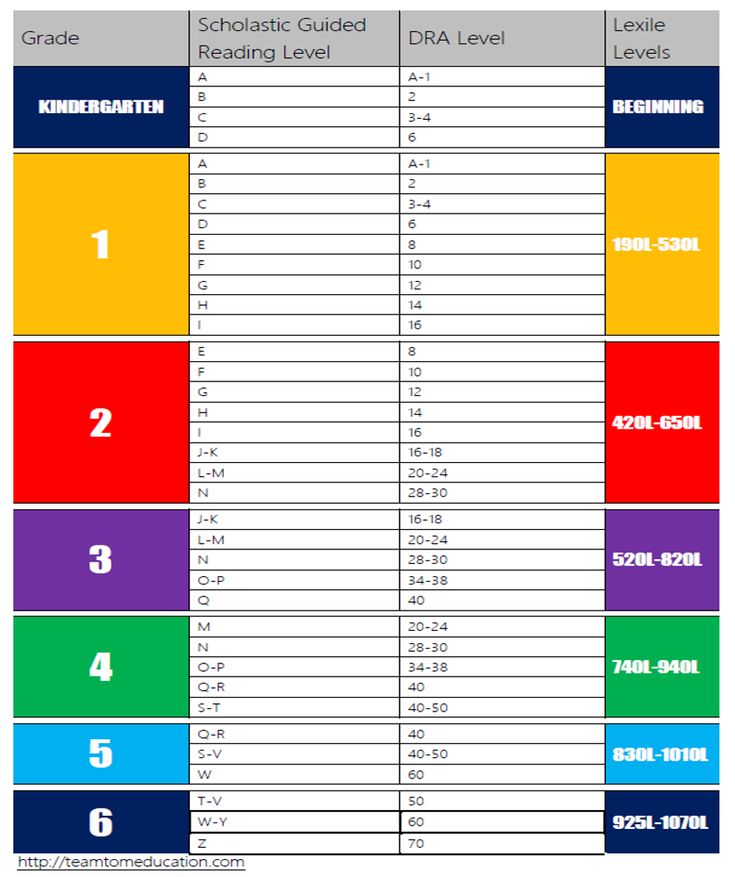
How can I test my child's reading skills on my own?
Have your child see how well they read already. Children usually love to know how many centimeters they have grown, and they may also be interested in knowing their progress in reading. Warn about the upcoming test and ask the child to read quickly.
The control of reading technique in sensitive children who, due to their temperament, can hardly tolerate various tests, can be carried out imperceptibly or in the form of a game. Do not create unnecessary excitement around the upcoming test, do not arrange a test in the form of an exam. If the child is worried, stutters, transfer control to another time.
Verification process:
- Prepare a clock with a second hand or use the stopwatch on your phone, and choose the appropriate text.
- Ask the child to take a seat.
- Show him the text and ask him to read it aloud.
- Track the time from the moment your child starts reading.
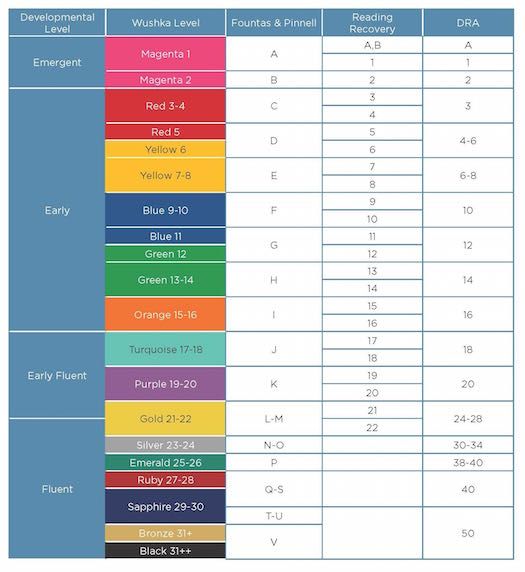 Not all children are able to immediately start reading on command, which leads to inaccurate results.
Not all children are able to immediately start reading on command, which leads to inaccurate results. - Usually, one minute is noted for checking, but some experts recommend taking 2 minutes for monitoring, since not all children are equally quickly included in the work. Divide the result obtained in 2 minutes in half.
- Do not correct or interrupt while reading. It is better to discuss the mistakes made after the child has finished reading.
- Assess the speed, correctness, awareness and expressiveness of reading.
- Retest and compare results. Reading technique may differ depending on the child's fatigue, health status and mood.
Which text is suitable for verification?
Both fiction and non-fiction texts appropriate for the child's age are suitable for this purpose. The text should be unfamiliar, but understandable to the child, have educational and educational value. The texts of V. Bianchi, L. Tolstoy, N. Nosov, B. Zhitkov, K.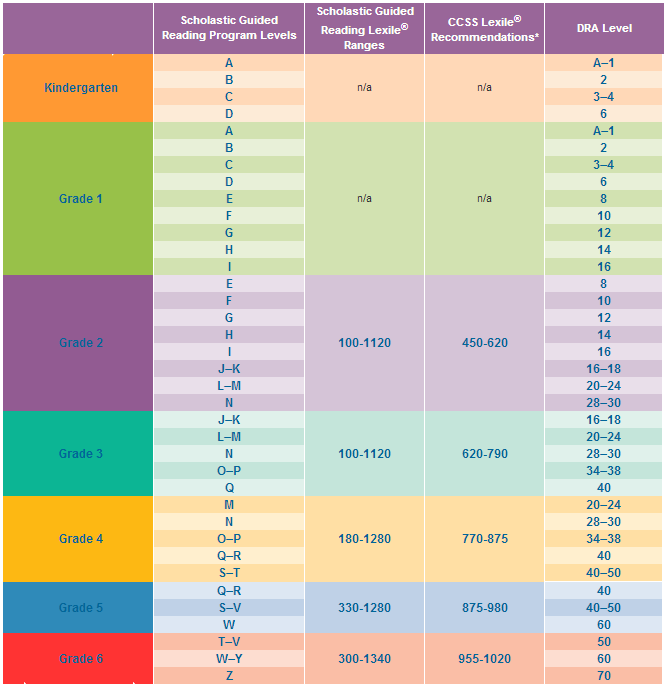 Ushinsky, V. Dragunsky are suitable. The text for verification can be found in special manuals or in a textbook on the Russian language and literature.
Ushinsky, V. Dragunsky are suitable. The text for verification can be found in special manuals or in a textbook on the Russian language and literature.
You should find the text that is located on the spread of the book so that the child does not have to waste time turning pages. Choose text without an abundance of punctuation marks and distracting illustrations. It is not desirable that the passage contains common complex sentences and dialogues. The font must be large enough and legible. The text should not have a technical focus and contain terms incomprehensible to the child.
Test score
Speed score
Count how many words the child read in one minute. When counting words, pay attention:
- prepositions, conjunctions, particles of 1-2 letters are counted as one word;
- when wrapping, the word is counted as 2 words;
- if the word is written with a hyphen, look at how many letters are on both sides of the hyphen: if there are more than three, we count it as 2 words, for example, "long, long", if less than three, for example, "somehow", - as one .
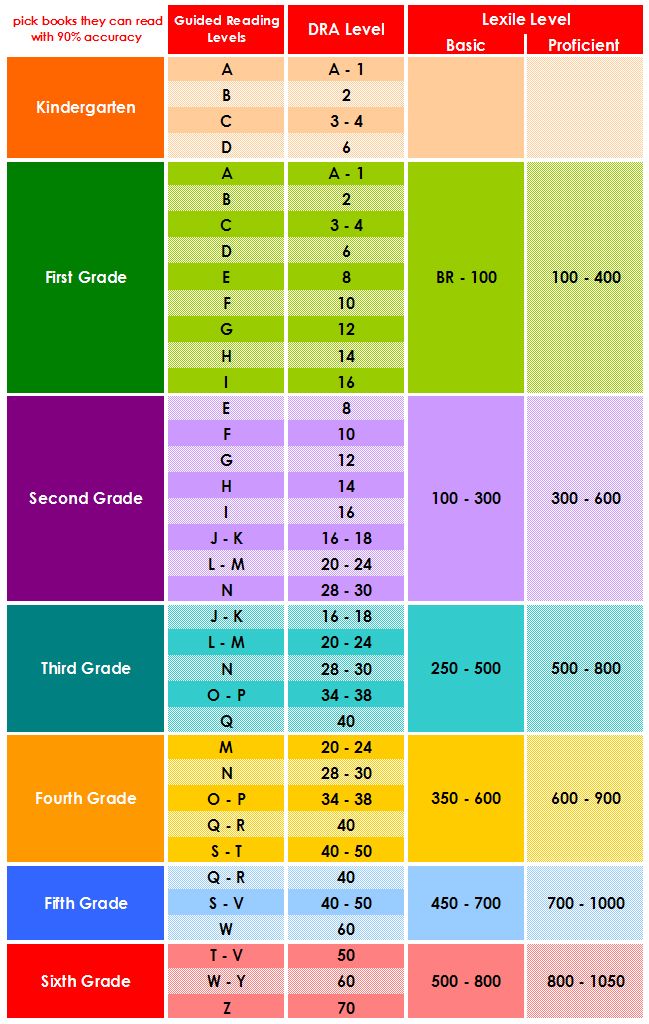
Compare your score with the recommended range and your child's previous performance.
Comprehension score
Determine how well the child understood what they read. If the student reads slowly and has read only a couple of sentences, let him read the passage to the end. Ask your child a few questions about the text. Ask what or who he read about. Ask the child to identify the main idea of what they read and retell the text.
For a deeper check of the meaning of the reading and learning, use special teaching kits.
Correctness assessment
Pay attention to whether the child reads what is written correctly, whether he pronounces words clearly, whether there are hesitations and corrections, whether he alters words, whether he changes endings, whether he places stresses correctly. Discuss the mistakes with the student.
Evaluation of expressiveness
To assess the expressiveness of reading, the child is offered a familiar text.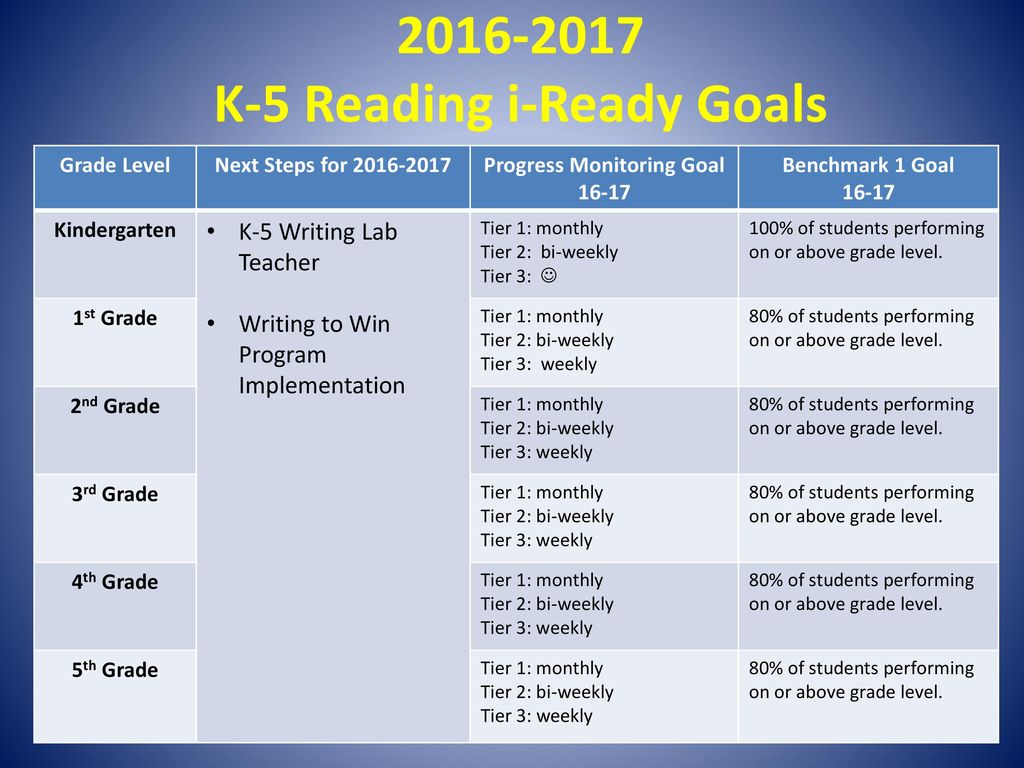 Listen to whether the child observes pauses and other punctuation marks, whether he changes intonation, whether he highlights the main idea.
Listen to whether the child observes pauses and other punctuation marks, whether he changes intonation, whether he highlights the main idea.
Improving reading technique
Poor results in reading technique are not a reason to be upset, but only a signal that additional efforts need to be made to improve the skill. You can work with the child on your own or contact a specialist who will analyze the weak points and select the appropriate exercises. Conduct additional activities with the child in the mode of "sparing reading" without pressure. It is more important to observe the regularity and frequency of classes: 10-20 minutes daily.
How can you motivate your child to read:
- Reward your efforts with stickers, stars.
- Mark progress visually - create a success board so your child can visually see their progress
- Conduct activities in the form of a game, such as "going to the library" or "reading to your favorite toys.
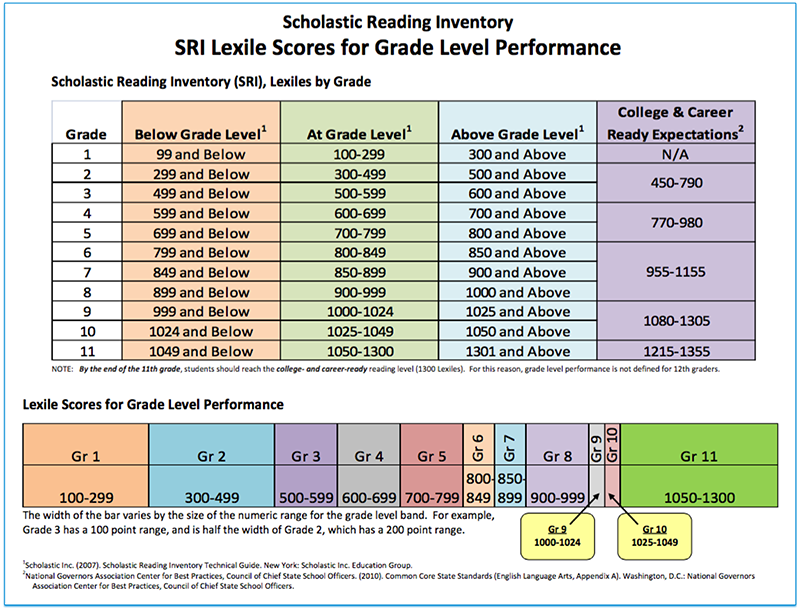 "
" - Choose books and texts that are interesting for your child.
- Let the child read to pets, they are grateful and accepting listeners. Reading to them, the child is not afraid to make a mistake, he relaxes and overcomes the fear of failure.
- Have a reading competition between peers and siblings.
To improve the speed of reading will help:
- Reading by syllabic tables.
- Multiple reading. Read the same text several times, increasing the pace. From the second time the child will be able to read faster.
- "Tug". An adult leads a finger along the line, setting the pace. The child tries to read at a given pace.
- Tops and roots. The child reads the words, covering the upper or lower half of the letters with a ruler.
- Reading in a book turned upside down.
- Lightning. Alternating reading at a comfortable pace with reading at the highest possible speed for 20 seconds on the command "Lightning!".
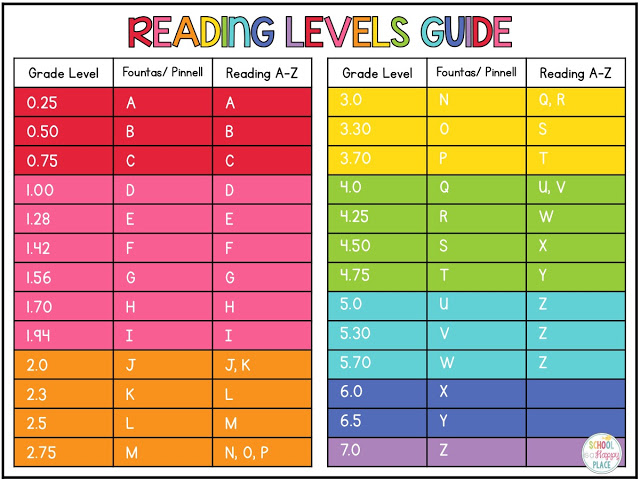
- "Sprint". Reading speed competition between classmates.
- Work on expanding the field of view according to Schulte tables.
- Reading with a window to eliminate "regression" - recurrent eye movements that lead to repeated reading.
For correct reading:
- Work on clear diction, do articulation exercises.
- Read tongue twisters and tongue twisters.
- Invite the child to correct the deformed sentences: "The weather is good on the street."
- "Imaginary word". When reading, the wrong word is pronounced, the child must correct it.
Reading comprehension
- Wave Reading. First, the child reads aloud, then retells what he read.
- Drawing up a plan for reading.
- The student reads to himself at a comfortable pace, tells what he understood and felt, what he thought about
- Discuss unfamiliar words and expressions.
- Invite the child to draw a picture of the passage they read.
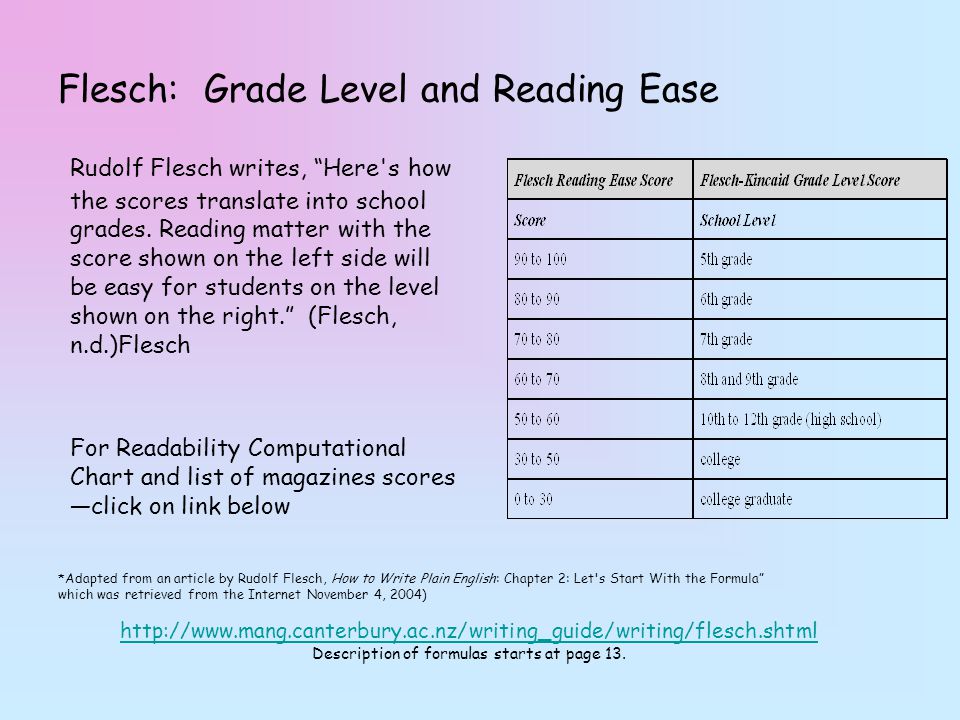
- Ask them to tell you what they liked about the text, what they remember.
For expressive reading
- Role-playing, staging.
- Put on a "radio show".
- Expressive recitation of poems.
- Voice flexibility training. The ability to speak quieter-louder, higher-lower.
- Conducting reading indicating the tone or strength of the voice.
- Live Picture. One reads, the other reacts with facial expressions.
Improving reading skills in elementary school is very important. It is fluent and meaningful reading that activates the processes of thinking, attention, memory and is the basis for a child's successful learning in the future. This detailed instruction on reading technique control will help you track and improve your child's skill development.
Russian language for students in grades 1-4
We develop thinking skills, prepare for the Olympiads and improve the results of the Russian language in an interactive format
learn more
Reading technique.
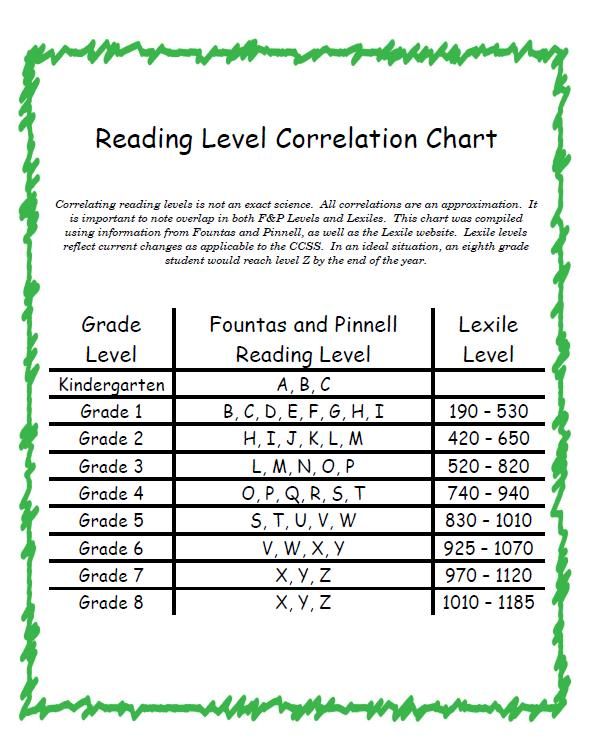 Norms 1-4 class.
Norms 1-4 class. Since many parents stubbornly refuse to understand what is the point of testing reading technique in elementary school (grades 1-4), I give up and publish reading norms. At the same time, I ask you to carefully read not only the quantitative norm of words per minute, but also my explanations both in the table and below it.
Reading Speed Standards Grades 1-4
→ Number of words may vary slightly depending on curriculum. Increased rates are given in parentheses.
→ Grade 1: no mark is given, the student "did" or "did not do it". In the first half of the year, the reading technique may not be carried out.
| Grade | at the end of the first half of the year | at the end of the second half of the year |
| 1 cl. | at least 10 - 15 (20 - 25) wpm | by 2 -> less than 15 (25) words per minute by 3 -> 15-19 (25-34) words by 4 -> 20-24 (35-40) words by 5 -> from 25 ( 41) words |
| 2 cl. | 2 -> less than 25 (40) wpm 3 -> 25-29 (40-48) wpm by 4 -> 30-34 (49-54) words by 5 -> from 35 (55) words | by 2 -> less than 40 (50) words per minute by 3 -> 40-44 (50-58) words by 4 -> 45-49 (59-64) words by 5 -> from 50 ( 65) words |
| 3 cells | by 2 -> less than 40 (55) words per minute by 3 -> 40-49 (55-64) words by 4 -> 50-59 (65-69) words by 5 -> from 60 (70) ) words | by 2 -> less than 65 (70) words per minute by 3 -> 65-69 (70-79) words by 4 -> 70-74 (80-84) words by 5 -> from 75 (85) ) words |
| 4 cells | by 2 -> less than 65 (85) words per minute by 3 -> 65-74 (85-99) words by 4 -> 75-84 (100-114) words by 5 -> from 85 (115) ) words | 2 -> less than 70 (100) wpm 3 -> 70-88 (100-115) wpm by 4 -> 89-94 (116-124) words by 5 -> from 95 (125) words |
Other reading parameters 1-4 class
| Grade | at the end of the first half of the year | at the end of the second half of the year |
| 1 cl. | Reading is conscious, correct, simple words are read as a word. Words with a complex syllabic structure can be read syllable by syllable. | |
| 2 cl. | Reading consciously, correctly, in whole words. Compliance with logical stresses. Words of a complex syllabic structure can be read syllable by syllable. | Reading consciously, correctly, in whole words. With observance of logical stresses, pauses and intonations. Syllabic reading is undesirable. |
| 3 cells | Reading consciously, correctly, in whole words. With observance of pauses and intonations, through which the student expresses understanding of the meaning of what is being read. | Reading consciously, correctly, in whole words. With observance of pauses and intonations, through which the student expresses understanding of the meaning of what is being read.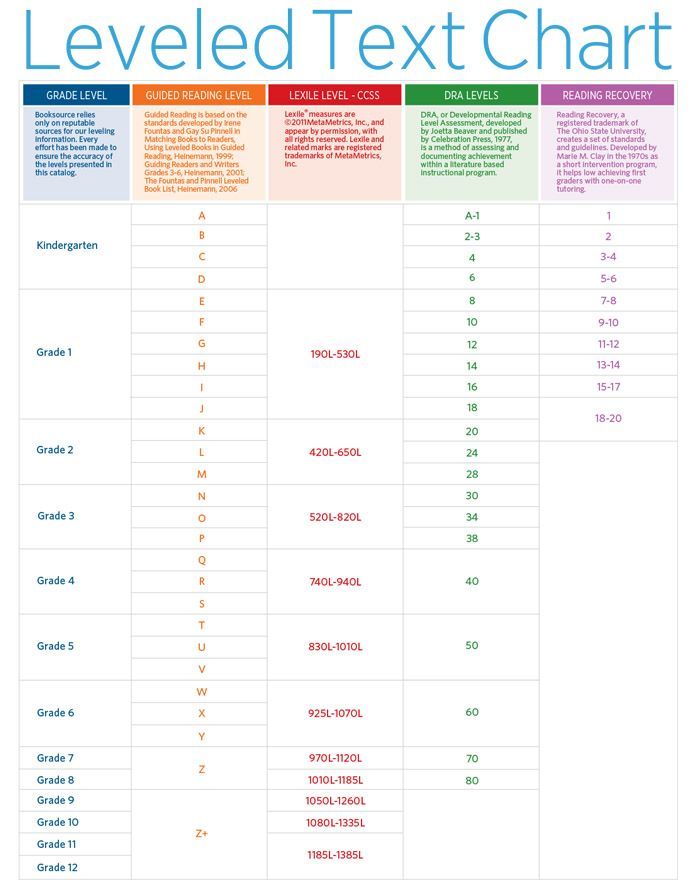 |
| 4 cells | Reading consciously, correctly, in whole words. With observance of pauses and intonations, through which the student expresses an understanding of the meaning of what is read, and his attitude to the content of what is read. | Reading consciously, correctly, in whole words. With observance of pauses and intonations, through which the student expresses an understanding of the meaning of what is read, and his attitude to the content of what is read. |
Criteria when setting an estimate for reading technique:
- reading by syllables or word completely,
- Availability of errors when reading,
- number of words per minute,
- expressiveness,
- awareness.
can be clicked to enlarge
As you can see, the number of words read is not decisive.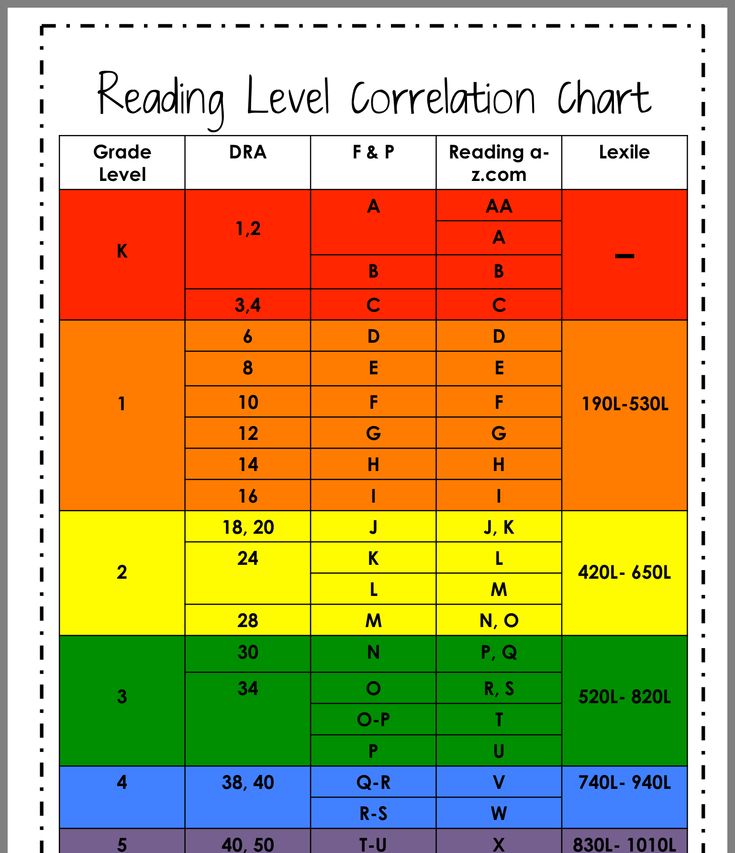
That is, parents need to understand that such a concept as reading speed is only one of the criteria for determining the level of reading technology . way of reading is being checked : the child reads by syllables or the word is read by him smoothly, in its entirety. It is mandatory to check reading comprehension , in other words, whether the student understands what he has read or not. To do this, after reading, a question can be asked about the text, most often “What did you just read about?” and requires a simple answer (a detailed retelling is not needed 😉)
The expressiveness of reading, the presence of errors and / or stammers are also taken into account. Sometimes there is a return to re-reading the previous word, this indicates a lack of awareness and is considered a mistake.
It should also be taken into account that the standards for the speed (rate) of reading may differ depending on the educational institution, the requirements for a student of a gymnasium will be higher, for a student of a correctional class - lower.
Learn more

